




40 Acres and a Lie tells the history of an oftenmisunderstood government program that gave formerly enslaved people land titles after the Civil War. A year and a half later, almost all the land had been taken back.
This project is a collaboration between the Center for Public Integrity, the Center for Investigative Reporting, and the Investigative Reporting Workshop.
Pompey Jackson was born in the heart of Georgia’s rice empire — the human property of one of the state’s wealthiest and most powerful families. He and his sisters were among hundreds enslaved on a sprawling marshland estate called Grove Hill, where life was brutal. People died every month, mostly young children. Those who reached adulthood often suffered spinal injuries, lung disease, and foot rot from sloshing through flooded rice fields. Jackson survived smallpox. He was a teenager in late 1864 when Union General William T. Sherman and his soldiers advanced through the Ogeechee River low country on their way to capture Savannah. Sherman freed thousands during his march through the South, later writing that “freedmen, in droves, old and young, followed [our troops] to reach a place of safety.” On

Jan. 16, 1865, at the urging of Savannah’s Black ministers, Sherman issued an edict called Special Field Orders, No. 15, which reserved large swaths of coastal South Carolina, Georgia, and northeastern Florida for the formerly enslaved to live and work on and govern themselves.
Sherman’s pledge of land for the formerly enslaved—which would become known as “40 Acres and a Mule”—remains the nation’s most famous attempt to provide some form of reparations for American
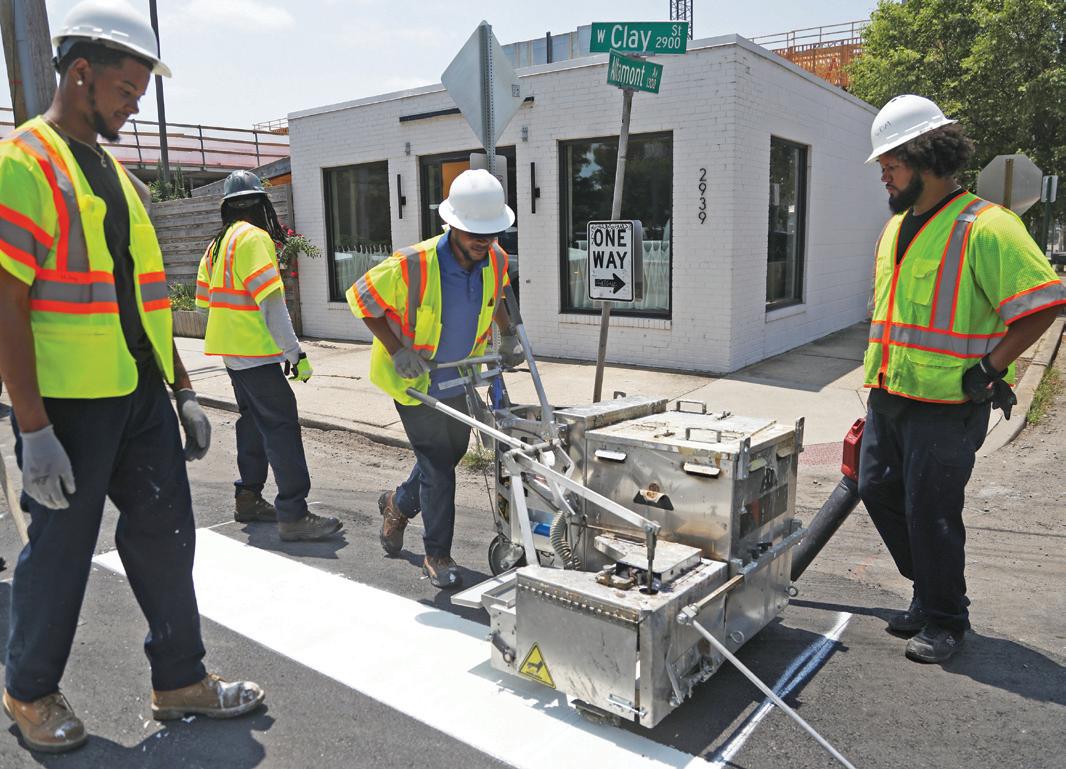
As

slavery. Today, it is largely remembered as a broken promise and an abandoned step toward multiracial democracy. Less known is that the federal government actually did issue hundreds, perhaps thousands, of titles to specific plots of land between 4 and 40 acres—before ultimately changing course and returning the land to the plantation owners. (The freedmen were not, in fact, promised a mule, though some did receive them.)
Jackson was among the first freedmen in Georgia to get one
of these land titles, choosing to begin his life after the war on a plot carved out of the very rice fields where he’d spent his years enslaved. On April 20, 1865, a federal agent issued Jackson a land title for 4 acres at Grove Hill. We came across that title as part of the Center for Public Integrity’s years-long effort to search through nearly 1.8 million records, which allowed us to identify 1,250 formerly enslaved men and women, including Jackson, who received land titles in Georgia and
Giants’ Willie Mays, ‘Say Hey Kid,’ dies at 93
The Associated Press
Willie Mays, the electrifying “Say Hey Kid” whose singular combination of talent, drive and exuberance made him one of baseball’s greatest and most beloved players, has died. He was 93.
Mays’ family and the San Francisco Giants jointly announced Tuesday night he had “passed away peacefully” Tuesday afternoon surrounded by loved ones.
South Carolina in the months that followed Sherman’s field orders. All of the records were created by the now-defunct U.S. Bureau of Refugees, Freedmen, and Abandoned Lands, and were only digitized in the last 10 years. We first discovered some of the land titles in 2021, within a recently digitized roll of microfilm labeled “Unbound Miscellaneous Records.” To aid in our search, we developed an image recognition algorithm that helped us surface land titles that covered more than 24,000
acres on 34 plantations that were seized by the Union Army from Confederate landowners. While the titles we have represent just a fraction of those distributed under Sherman’s orders, we were able to identify at least 34 former plantations where specific land was granted to Black families and then taken back. In 2000, when Congress passed the Freedmen’s Bureau Preservation Act, it financed a five-year effort to index

The center fielder was baseball’s oldest living Hall of Famer. His signature basket catch and his dashes around the bases with his cap flying off personified the joy of the game. His over-the-shoulder catch of a long drive in the 1954 World Series is baseball’s most celebrated defensive feat.
Over 22 seasons, virtually all with the New York/San Francisco
Giants, Mays batted .302, hit 660 home runs, totaled
scored more than 2,000 runs and won 12
He was Rookie of the Year in 1951, twice was named the Most Valuable Player and finished in the top 10 for the MVP 10 other times.
Nine protesters will go to trial Friday, June 21, at the John Marshall Courts building for blockading Interstate 95 in March as part of an anti-war protest against the ongoing conflict in the Gaza Strip.
The group, referred to as the “I-9” by supporters, have been charged with multiple misdemeanors that could lead to jail time and fines if convicted. Supporters have called on Commonwealth’s Attorney Collette McEachin to drop the charges. When asked for a statement, McEachin refused to comment.
The protest began some time before 7 a.m. March 11, with the nine binding themselves together with a chain, ladders and piping wrapped in wire to prevent separation. Virginia State Police were alerted
to the blockade by drivers and arrived on the scene soon after, declaring the protest an unlawful assembly and arrested the protesters. The highway reopened around 10:30 a.m. with no reported injuries.
The protesters and their supporters, identifying themselves as the “VA I-9 for Palestine Community Support Committee,” reiterated their dedication to their cause in released statements.
“I understand the Palestinian struggle for national liberation as connected to the broader anti-colonial struggle for peace being waged by Black and Indigenous people across the Global South,” said Naomi Isaac, one of the protesters and an organizer for Virginia Student Power Network, Southerners on New Ground and member of the Black Alliance for Peace.

Free Press staff report
The Military Retirees Club of Richmond is calling on veterans, service members and military families to participate in their first “Bridge Over Troubled Waters Walk” on Saturday, June 29, at Belle Isle.
The event aims to bring more attention to suicide prevention and the opioid crisis affecting the military community. Participants will gather at 7 a.m. in the Dominion Energy parking lot adjacent to the foot of the Belle Isle Pedestrian Bridge to register for the 5K walk, which begins at 7:30 a.m.
The route will take walkers around Brown’s Island, allow for a photo opportunity at the Tredegar Iron Works, cross over the Belle Isle Pedestrian Bridge, and conclude back at the Dominion parking lot. Refreshments and entertainment will be provided after the walk.
The “Bridge Over Troubled Waters Walk” is being held to show support for veterans, active service members, and their families affected by mental health issues and substance abuse. For additional information, please contact the Military Retirees Club of Richmond at (804) 400-9473.
The Commonwealth of Virginia is calling on residents to nominate exceptional volunteers, organizations and businesses for the 2024 Governor’s Volunteerism & Community Service Awards. These annual honors celebrate the contributions of Virginians who dedicate their time and energy to causes that create positive change across the state.
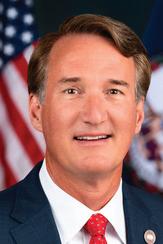
From individuals who inspire through their selfless commitment, to groups making a powerful impact in their communities, the awards shine a light on the transformative power of service. Serve Virginia and the Virginia Service Foundation, which present the awards, aim to recognize the millions of generous people improving lives through volunteerism each year.
Selected honorees will be recognized by the governor at a ceremony hosted at the Executive Mansion in Richmond. All nominees will be featured on the Serve Virginia Honor Roll, celebrating their spirit of service.
Virginians are encouraged to nominate volunteers, organizations, faith-based groups, schools, businesses and any other exceptional citizens before the June 25 deadline at 5 p.m. Nomination forms and criteria can be found at virginiaservice. virginia.gov/awards
Free community testing for COVID-19 continues
The Richmond and Henrico County health districts are offering testing at the following locations:
• Wednesday, June 19, 8 to 10 a.m. - East Henrico Recreation Center, 1440 N. Laburnum Ave.; 2 to 4:30 p.m. - St. Luke’s Apartments, 117 Engleside Drive.
• Thursday, June 20, 1 to 5 p.m. - Henrico Arms Apartments, 1566 Edgelawn Circle.
RHHD’s Resource Centers are providing free at-home tests for pickup at select locations:
• Creighton Court at 2150 Creighton Road, call (804) 371-0433.
• Fairfield Court at 2311 N. 25th St., call (804) 786-4099.
• Gilpin Court at 436 Calhoun St., call (804) 786-1960.
• Hillside Court at 1615 Glenfield Ave., call (804)230-7740.
• Mosby Court at 1536 Coalter St., call (804) 786-0204.
• Southwood Court at 1754 Clarkson Road. Unit #B, call (804) 230-2077.
• Whitcomb Court at 2106 Deforrest St., call (804) 786-0555. Call the Richmond and Henrico Call Center at (804 ) 205-3501 from 8 a.m. to 5 p.m. Monday through Friday. For information on testing sites, or go online at vax.rchd.com.
The Virginia Department of Health also has a list of COVID-19 testing locations around the state at www.vdh. virginia.gov.
Want a COVID-19 vaccine?
Those interested can schedule an appointment with RHHD by calling (804) 205-3501. Vaccines.gov also lists nearby pharmacies and clinics that offer the COVID-19 vaccine, and those interested can also text their ZIP code to 438829 or call 1-800-232-0233.
The Centers for Disease Control and Prevention recommends that children between the ages of 6 months to 4 years old may need multiple doses of the updated vaccines depending on their COVID-19 vaccine status and whether they had previously received Pfizer and Moderna.
Waiting periods for additional vaccines can range from three to eight weeks or four to eight weeks depending on the vaccine dose previously received.
Children between the ages of 5 to 11 who are unvaccinated or have received a vaccine before the 2023-2024 formula should get one updated Pfizer or Moderna vaccine, with doses for those previously vaccinated given the updated dose at least eight weeks after their most recent dose.
Those age 12 and older who are unvaccinated should get either one updated Pfizer or Moderna vaccine or two doses of the updated Novavax vaccine. People in that age range who received a vaccine before the updated 2023-2024 formula should get one updated dose of any of the vaccines at least eight weeks after their most recent dose.
People who are moderately or severely immunocompromised may get additional doses of updated COVID-19 vaccine and are encouraged to talk with their health care providers.
Information compiled by George Copeland Jr.
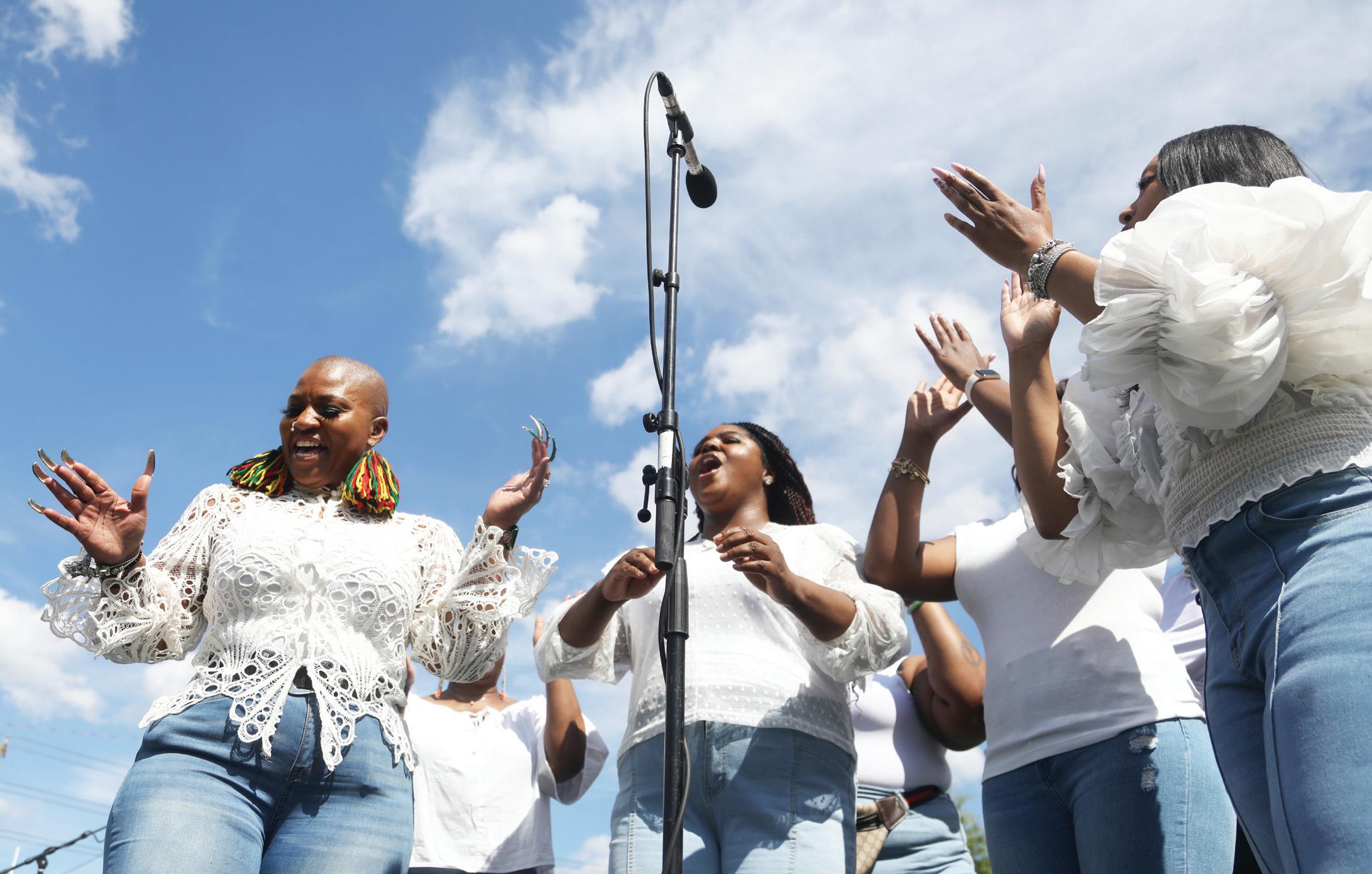
Next month, Scott’s Addition will officially be home to Brainstorm Brewhouse, a majority Black-owned brewery. The new brewery is a venture headed by beer aficionados CM Bryant and Darryl Puller. It was formed after conversations with Bill Cavender, owner of Black Heath Meadery, who had empty space at his Dabney Road production facility. Bryant and Puller were formerly involved with another Richmond brewery, Capsoul Brewing Collective, before deciding to part ways last year.
A few months ago, over some craft brews at the Answer Brewery, longtime acquaintances Puller and Cavender were brainstorming. They eventually brought Bryant into the venture as well. In addition to sharing a production facility, Brainstorm and Black Heath also share a taproom at 1313 Altamont Ave., where the brewery recently hosted beer previews and held a soft opening.
Puller, with over a decade of home-brewing experience, will handle the brewing, while Bryant takes care of the busi-
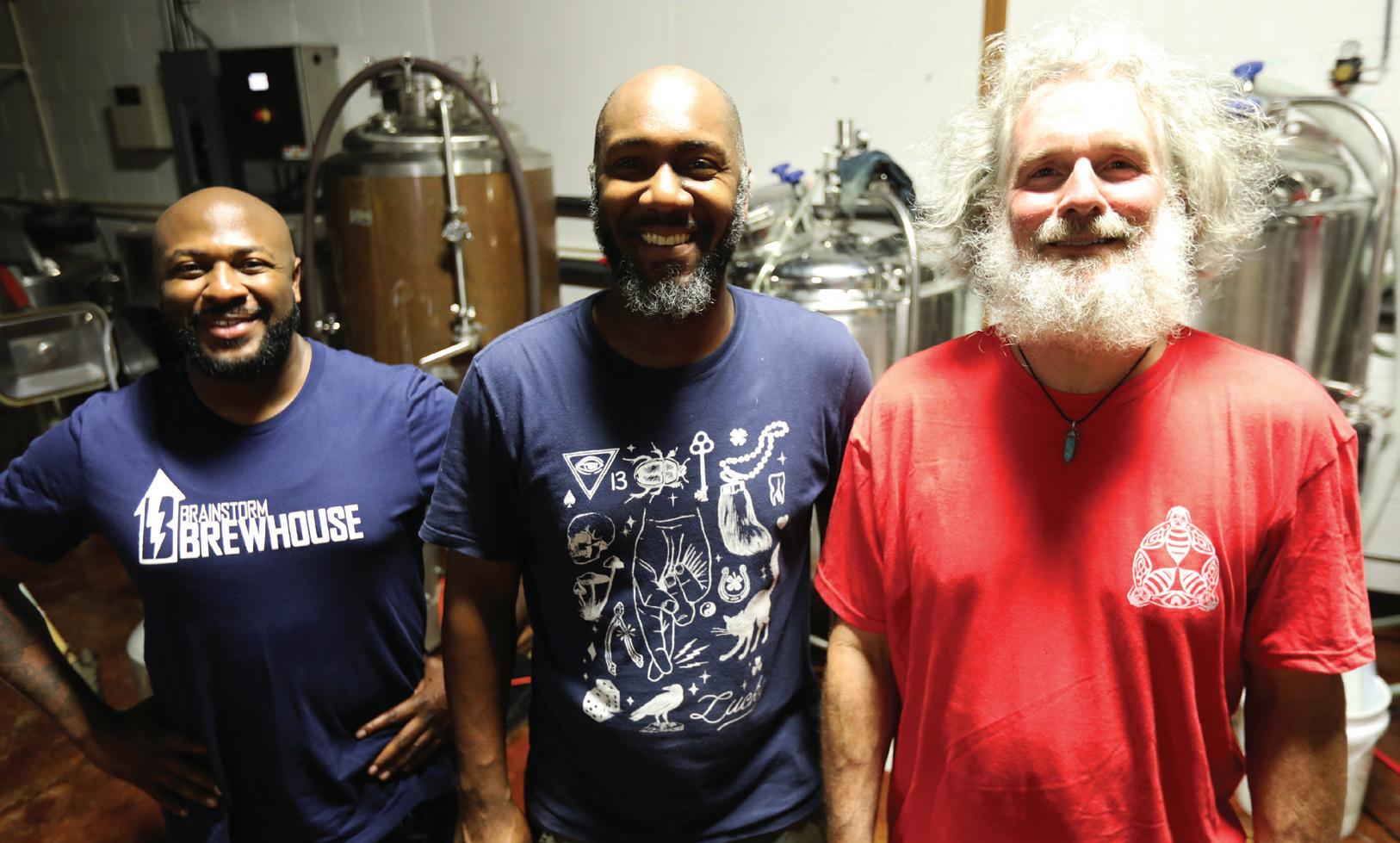
ness’ other needs. The craft beer scene in Richmond is a primarily white space. One of the biggest goals with this new venture is to get more Black people into craft beers, Puller said.
Brainstorming has been central to the brewery’s development, from how to source equipment to what the unique offerings will be. So it felt ap-
propriate to name their business accordingly, Bryant said.
The brewery currently has some variety in what it has offered so far: Buzz Worthy, a honey lager; Kiss of Chocolate, a chocolate lager; and Psych Eval, a double IPA.
“The hope is that we can offer more of a one-stop destination for people where you can come out with a group of folks and drink a variety of beers, for the folks that are into beer,” Cavender said. Puller said the soft launches for the business have so far been “humbling and rewarding.”
“I’m decent at some things, but I feel like I’m pretty good at this beer thing,” he said. “For people to receive it and actually appreciate it and want more, it’s cool.”
Preservation Virginia announced the 2024 class of its African American Fellowship Program recently, recognizing five community preservationists for their dedication to historic preservation and research. Among this year’s fellows is Michelle Evans-Oliver, a renowned local genealogist.
Evans-Oliver, president and wealth advisor of The Oliver Financial Group, combines her expertise in financial literacy with a passion for genealogical and historical research. Her fellowship project will focus on genealogical research and preservation at Evergreen Cemetery in Richmond, a historically significant African American burial ground. Her work
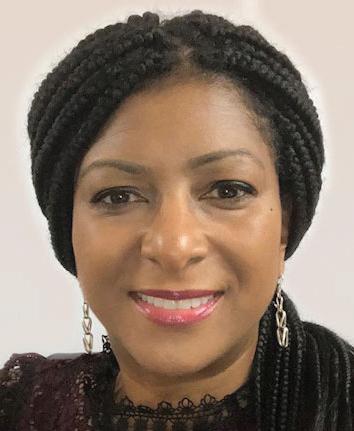
aims to document and honor the lives of those interred there, contributing to a fuller understanding of the city’s African American heritage.
The African American Fellowship Program, part of Preservation Virginia’s Voices Remembered initiative, was established in 2021 to increase the number of trained community preservationists focused on African American historic sites in Virginia. This year’s fellows will engage in Preservation 101 coursework, mentorship
and hands-on research projects, culminating in presentations at the Black History Museum and Cultural Center of Virginia on Aug. 15.
Other fellows in the 2024 cohort include Lorenzo Dickerson, a documentary filmmaker from Albemarle County; Dr. James Mitchell Harrison, a genealogist from Surry; Michael Johnson, a cemetery preservationist from Alexandria; and Horace Scruggs, a filmmaker from Palmyra.
Preservation Virginia is dedicated to advocating for and preserving Virginia’s historic places through education, revitalization and stewardship. Learn more about their work at preservationvirginia.org.
As part of an effort to enhance cybersecurity for r users of its online services, Henrico County general government is moving the domain for its website and email to “.gov.”
Effective July 1, the county’s web address will be henrico.gov and county email addresses will end in @henrico.gov
Henrico residents are encouraged to update their contact lists and web bookmarks to the new domain. Emails and visitors to the current domain, henrico.us, will be redirected automatically to the .gov address.
“The change to henrico.gov will help our residents and customers identify official, trusted information from Henrico County,”
Travis M. Sparrow, county Department of Information Technology director, said.
“Visitors to henrico.gov and recipients of an email from @henrico.gov can be confident that the content is authentic Henrico County government information.”
The .gov domain is available only to official, U.S.-based government organizations and publicly controlled entities, noted Sparrow.
The new domain also will help users recognize the official county website and genuine emails from county staff and avoid phishing attempts and websites that may attempt to impersonate county personnel and
offices, he noted. The web and email domains for Henrico County Public Library and Henrico County Public Schools will not be affected by the change. Those addresses will remain henricolibrary.org and @henricolibrary.org; and henricoschools.us and @henrico.k12.va.us, respectively.
In advance of the general election in November, the U.S. Cybersecurity and Infrastructure Security Agency and the FBI have recommended election offices and state, local and other government entities adopt the .gov domain to reduce impersonation and cybersecurity risks.













Continued from A1
and microfilm the records— mostly handwritten, and often in elaborate penmanship—from the Reconstruction-era agency charged with aiding millions of emancipated slaves. In the years that followed, the Mormon Church began digitizing images from the microfilm through its genealogy platform FamilySearch, making 1.5 million records available online in partnership with the National Archives. Eric Foner, a leading historian who has written extensively about the Civil War, said this digitization was vital because there are no other sources outside of the Freedmen’s Bureau records that illustrate this aspect of Reconstruction so clearly.
While historians had long known that at least some of these titles still existed—one has been featured on the National Archives website since at least 2007—such a large collection has never been published and analyzed in one place. “These records contain an enormous amount of genealogical information that has not been readily available to many African Americans,” said historian Karen Cook Bell, who said she first encountered some land titles back in 1991 while searching through National Archives paper records by hand to research her dissertation.
“Having this kind of evidence—of actual families who received land and had that land taken away—certainly can address, in some measure, the issue of reparations,” said Cook Bell, whose 2018 book, “Claiming Freedom: Race, Kinship, and Land in NineteenthCentury Georgia,” documents life on lowcountry plantations such as Grove Hill. In her book, she identified nearly 400 formerly enslaved men and women in Georgia who had received land titles. “When you talk about the economic inequalities in American society, they all center around who has access to property, and who has access to land.”
After surfacing the digitized land titles and logs entries, we conducted genealogical research to trace what happened to the descendants of these 1,250 men and women in the century and a half since Sherman’s promise was broken—reviewing thousands of Freedmen’s Bureau bank records, marriage certificates, and census documents. Many names didn’t appear on any other public records; other names were too common to research with confidence. Ultimately, we created family trees for about 100 of the freedmen and women and identified 41 of their living descendants.
“I had no idea,” said Mila Rios, after being shown a Freedmen’s Bureau log that included the name of her great-greatgrandfather, Pompey Jackson. “That’s infringement. It was given to him and taken back.”
Sherman’s special Field Orders, No. 15 set aside the islands and coastline of Georgia, South Carolina, and northeastern Florida exclusively “for the settlement of the negroes now made free by the acts of war.” The orders granted the head of each family up to 40 acres of land on seized or abandoned plantations, and afforded them military protection “until such time as they can protect themselves, or until Congress shall regulate their title.” The orders further noted that “in the settlements hereafter to be established, no white person whatever, unless military officers and soldiers detailed for duty, will be permitted to
reside; and the sole and exclusive management of affairs will be left to the freed people themselves.” In his memoirs, Sherman explained that he had not necessarily intended to ensure the freedmen the right to the land indefinitely, but at least through the end of the war and until federal officials took more permanent measures.
In the meantime, the task of explaining and administering the orders fell to Rufus Saxton, a decorated Union general, who traveled to the Second African Baptist Church in Savannah on a February afternoon in 1865.
After an organist played a celebratory hymn and the Rev. Ulysses L. Houston, who’d helped persuade Sherman to redistribute land, offered a prayer, Saxton addressed those who had crowded into the church that day.
“The soil is the source of all true prosperity and wealth,” Saxton reportedly told those who had gathered in the pews.
“No people can be great unless they own soil. You know that; Gen. Sherman knows it; our Father in heaven knows it. And now I want to tell you, you may own the soil.” Saxton’s declaration created a stir, but his words would come back to haunt him.
A few weeks later, President Lincoln signed into law a bill that clarified that Black families could rent their chosen plots for three years, with the option to buy them. The bill also created the Freedmen’s Bureau, an agency charged with coordinating temporary housing, food, health care, education and work for the 3 million formerly enslaved people across the nation.
Within a few weeks, Saxton’s officers were issuing land titles to freed people. By June, Saxton reported that he had settled some 40,000 Black citizens on the land set aside for them through Sherman’s orders.
Among them were a woman named Eleaza Johnson and a man named York Williams, who each received 40 acres on Skidaway Island. A short boat ride from Savannah, the 11,430-acre island that had been home to a dozen plantations was where Houston resettled more than 1,000 freed people in an attempt to build a self-sufficient Black colony.
On the mainland south of Savannah, near the neck of the Ogeechee River, at least 50 men and women, including Pompey Jackson, were issued land titles at Grove Hill. Many had been enslaved there together. The new landholders elected a board of representatives to advise the Freedmen’s Bureau agent in their district, formed their own militia, the Ogeechee Home Guards, and continued producing rice to sell in Savannah.
Despite getting started late into the growing season, and having no mules or agricultural equipment, the freedmen were succeeding, shocking many of their former slave owners, Saxton reported back to headquarters in Washington, D.C. “They have persevered with an industry and energy beyond our most sanguine expectations,” he wrote.
Life was far from perfect. For those who settled on the Sea Islands, such as Skidaway and Edisto, medical care was scarce. Those on the mainland faced the constant threat of white violence and little chance of justice if they fell victim to it. “The negroes
are frequently murdered, shot down in cold blood, without any provocation except their loyalty and because they assert their freedom,” Saxton relayed in a letter at the time.
“I hope and pray that our Government will not listen to the ex-parte statements of the old rulers of these States, many of whom are still traitors at heart, and even now are seeking to grasp again the political power under the old flag,” Saxton added. “It will be bad for the Freedmen if these men again get into power.”
It wasn’t long before Saxton’s fears became a reality. In April 1865, just a month after creating the Freedmen’s Bureau, Lincoln was assassinated by actor and Confederate sympathizer John Wilkes Booth. Lincoln’s successor, Andrew Johnson, was an avowed white supremacist who moved quickly to pardon many former Confederates and return their land.
“[Johnson] used executive power very, very skillfully to undermine transfer of land to Black people, and to really hamstring the Freedmen’s Bureau,” said Donald Nieman, a history professor at Binghamton University. He added that Johnson acted out of personal prejudice toward the freedmen, but also political expediency. “By restoring land and by giving pardons to the former landowners in the South, he thought he could make that group of people beholden to him politically.”
Gen. Oliver Howard, the head of the Freedmen’s Bureau, traveled to South Carolina in October 1865 and told the Black families gathered at a church on Edisto Island, south of Charleston, that the president had pardoned their former enslavers, according to the diary of a teacher who was there. Howard suggested that the freedmen could work for the planters, urging them to lay aside bitter feelings and reconcile with their former enslavers.
“No, never,” the people murmured, according to the teacher’s account. “Can’t do it,” they said. They burst into song, singing about “wandering in the wilderness of sorrow and gloom.”
For more than a year, a battle raged over who was entitled to the land—the former Confederates or the formerly enslaved. Legislation that would have codified Sherman’s field orders into federal law made it through Congress, but was vetoed by Johnson. The Freedmen’s Bureau resisted, insisting the property now belonged to the emancipated men and women. “They felt that they had earned the land. They’re the ones who had tamed the land, cultivated the land,” said Damani Davis, the archivist who oversees the National Archives’ Freedmen’s Bureau collection. “Their family and ancestors were buried in the land.”
That prompted Johnson to dispatch two generals to ensure that the former slaveholders were reinstalled as landowners.
By the time Congress took up another Freedmen’s Bureau bill in the summer of 1866, most of the land had been taken back. Lawmakers eventually mustered enough votes to override Johnson’s veto and pass a weaker bill that gave a few scraps to some formerly enslaved people who had received land titles and were still on that land. The law swapped out their
titles for warrants that allowed them to buy up to 20 acres for $1.50 per acre on government land in Beaufort County, S.C., far less than they had originally been promised.
In parts of the South, violence broke out as former rebels returned to plots that had since been occupied by the emancipated. One Freedmen’s Bureau agent reported that a 12-year-old boy had been “battered and bruised” by “his former master, who had driven him off, helpless and hungry, to find food and shelter as best he could.” Armed members of the Ogeechee Home Guards revolted, landing several of them in jail. (“The declared intention of the Negroes is to make it impossible for white men to live in this section and then take possession of the plantation themselves,” the Savannah Morning News reported.) Many other freedmen on the South Carolina Sea Islands refused to work for their former enslavers.
Among the white Southerners trying to reclaim the rice plantations lost following the war was William Habersham, one of the previous owners of Grove Hill. In January 1866, nine months after Jackson received his 4 acres, Habersham swore his allegiance to the Union and sought a presidential pardon. He enlisted Dan Talmage, a well-connected friend in New York, to make his case.
“His former slaves wish to labor for him & he is willing to pay them wages or give them a fair share proportion of the crop,” Talmage wrote to one of his senators in Washington, D.C. “I beg therefore that you use your influence to return him from his embarrassment. The season of planting is near and therefore important to get the matter arranged soon.”
While it is unclear if any of the formerly enslaved were truly interested in working for Habersham again, the appeals on his behalf worked. Within a few days, President Johnson pardoned Habersham, eventually allowing him to reclaim Grove Hill as his own.
Months later, in November 1866, a federal agent issued Jackson a “first-class warrant” to buy land in Beaufort County as consolation for his now worthless title to part of Habersham’s plantation. But Jackson wouldn’t leave Georgia, instead joining a number of freedmen who stayed in the Savannah area and found jobs as porters, housekeepers and dock workers.
Jackson was hired as a carpenter for a white man named William Carmichael, who had bought Causton’s Bluff, one of the Habersham family’s rice plantations. Jackson built shotgun houses for formerly enslaved workers who lived on the land for free, were paid 71 cents per day, and were permitted to use some of the land to plant their own cotton to sell. In 1867, he married Patience Simmons, a freedwoman from South Carolina, according to public records we reviewed. He registered to vote in Savannah.
“When [the land] was taken away, they didn’t wallow in despair,” wrote Cook Bell, now a historian at Bowie State University, noting that many of the freedmen gathered to build Black towns and found work fishing and raising livestock— and invested in land.
Pompey and Patience had
Continued from A1
“[It’s] a struggle to create dignified lives for our ancestors, free from the violence of patriarchy, policing and war.” Around 35,000 Palenstians have been reported dead and over 77,000 reported injured since the conflict in Gaza began last year, a response by Israel to the roughly 1,100 Israelis killed and about 250 people abducted by Hamas on Oct. 7.
The blockade was just one of several protests against the war and its impact on Palestinian life in Richmond in recent months, including an anti-war encampment established on Virginia Commonwealth University’s Monroe Park campus that was dispersed hours later by campus, local and state police using riot shields and tear gas.
Thirteen people were arrested at the encampment and charged with unlawful
seven children. Their daughter Florence Jackson described Pompey as a tall, quiet man who regretted never learning to write, according to Mila Rios, her great-granddaughter. But Pompey did learn to sign his name. A Freedmen’s Bureau Bank record from 1874 shows his signature at the bottom. It would take 20 years from the day he opened that bank account until he was finally able to buy his own piece of land. In 1894, Jackson paid $75 to purchase a parcel in East Savannah, then an unincorporated part of the city where freed slaves lived. The deed mentioned that Jackson was president of the East Savannah Home Protection Society, which Rios believes was a mutual aid organization he founded for freed people.
Florence recalled growing up in a shotgun house her father built on that land, and learning to make lye soap from hog fat and dandelion wine from their garden. Pompey ensured all his children learned to read and write, Rios said. Florence completed eighth grade, the highest available to her. But she would spend her life disappointed that, despite her education, the only job she could get in Savannah was washing clothes for white families.
Some of Jackson’s descendants joined the wave of Black Americans who migrated north in the early decades of the 20th century. His granddaughter Louise—Florence’s daughter— moved to Philadelphia in 1923 because her husband, a construction worker, was being paid less than his white co-workers, Rios said. Florence and her husband followed them North.
By then, the promise of “40 Acres and a Mule” had long faded, and the land title Jackson received was worthless. It would take decades for his granddaughter Louise, who worked as a nurse in a hospital maternity ward, and her husband to save enough money to purchase real estate. In 1951, they bought a quarter of an acre plot in a racially mixed Philadelphia suburb.
On a warm spring day in 2022, a “No Trespassing” sign dangled from a chain-link fence around a stretch of overgrown fields that were once part of Grove Hill. Some of that land is now for sale — the future location of a luxury gated community called The Habersham Plantation. An ad describes it as one of “Savannah’s hidden gems,” and promised fishing, crabbing, boating and kayaking on the Grove River.
An empty 4-acre lot — the size of Pompey Jackson’s plot — sold for $250,000 in October 2023. Based on that sale, 40 acres on Grove Hill could be worth about $2.5 million today.
That kind of generational wealth could have had a huge impact on freedmen and their descendants, said William “Sandy” Darity Jr., an economics professor at Duke University and a leading advocate for reparations.
“There would’ve been a territory ranging from the Sea Islands to northern Florida that would’ve been essentially a coastal Black belt community,” he said. Instead, he noted, Black Americans remained plagued by a wealth gap, possessing
just a quarter of the wealth held by white American families. “That would’ve had very significant implications for Black economic well being as well as Black political power.” In 1892, decades after the plantation was returned to William Habersham, the land was auctioned to pay off his family’s debts. It was purchased by one of his distant cousins, Robert Habersham Elliott, who bought all 1,700 acres for an amount equal to $544,000 in today’s dollars. Over the course of the next century, parts of the sprawling plantation would be divided, sold, and developed. In 2005, most of the land that once was Grove Hill was purchased by a developer for $3.2 million. The neighboring old manor house is now a private event space and occasional movie set. We reached out to several of William Habersham’s potential living descendants through a genealogy platform, but they did not respond. The homeowners association at The Habersham Plantation did not respond to our call or emails.
Sitting at the kitchen table of her two-bedroom house in suburban Fort Lauderdale, Mila Rios, Pompey Jackson’s great-great-granddaughter, said she was stunned to learn about her family’s connection to Grove Hill and “40 Acres and a Mule.”
“Unless you delved into it yourself, you’d never know” what really happened, Rios said. She said she doesn’t expect compensation for the 4 acres of land taken away from her family, though she believes her ancestors were entitled to it. “Me, personally, I’m not owed a dime,” she said, before acknowledging that she might feel different had her life included financial hardship.
After all, Pompey Jackson’s family defied the odds. Rios pulls out a black-and-white photo of her great-grandmother, taken on a sunny day in the early 1960s. Silver bracelets jingle on Rios’ wrists as she points out Florence, Florence’s daughter Louise, Florence’s sister, and some of their friends gathered in their backyard in suburban Philadelphia.
There, in the house her grandfather built on one-fifth of an acre, Rios experienced a comfortable middle class childhood. At the mostly white high school she attended, history teachers barely touched upon the era of Reconstruction and “40 Acres and a Mule.” Rios attended Bethune-Cookman University, a historically Black college in Florida, and later obtained a doctorate in clinical psychology from UCLA. She spent most of her career treating sexually abused girls in Los Angeles. Rios married a successful aerospace engineer, and together they traveled to Switzerland, Paris and Rome.
“I’ve had a fabulous life,” said Rios, who is now a widow. “I’m proud of what my ancestors did, or else I wouldn’t be … who I am today or where I am today.”
Rios’ great-grandmother Florence had hoped to move back to Savannah one day but never did. One of her brothers, however, lived his entire life on the property in Savannah that their father, Pompey, purchased back in 1894. The shotgun house he built is long gone, but the land is still in the family. Its current market value is $55,500, according to the latest appraisal from Chatham County — far less than a 4-acre plot on Grove Hill.
City opens cooling stations
Continued from A1
Department of Social Services buildings at Marshall Plaza and Southside Plaza also are designated cooling stations, open Monday through Saturday from 11 a.m. to 6 p.m. To provide additional relief during the hottest parts of extreme heat days, the city plans to open a dedicated Inclement Weather Shelter later this
assembly and trespassing, including six students who were disciplined through VCU’s student conduct procedures. All but one of those arrested at the VCU encampment were arraigned at the John Marshall Courts building in May, with their cases continued until Friday, June 28.
The VA I-9 for Palestine Community Support Committee stated in their press release that they plan to demonstrate at the courthouse Friday at the trial.
as a temporary cooling station location on City holidays and Sundays until the Inclement Weather Shelter opens. As the summer heat intensifies, Richmond officials are encouraging all residents, especially those most vulnerable like the elderly, to take advantage of the cooling station resources. Locations and hours can be found on the City of Richmond’s website at richmond.gov/cooling


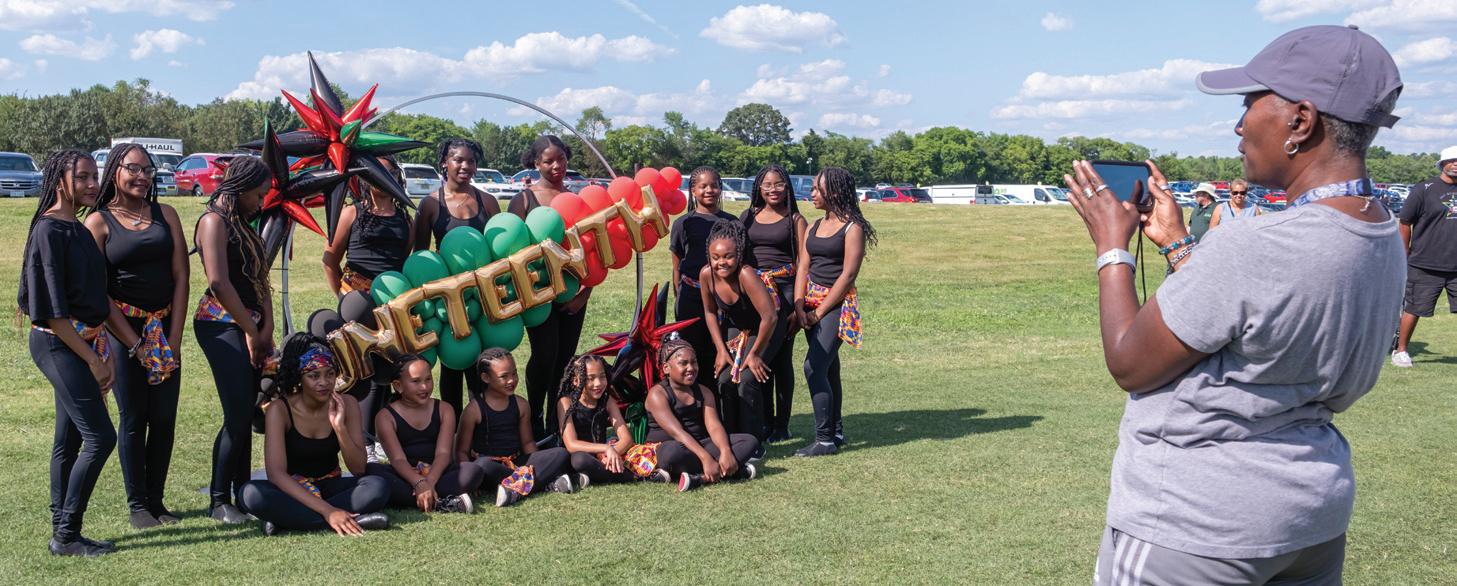
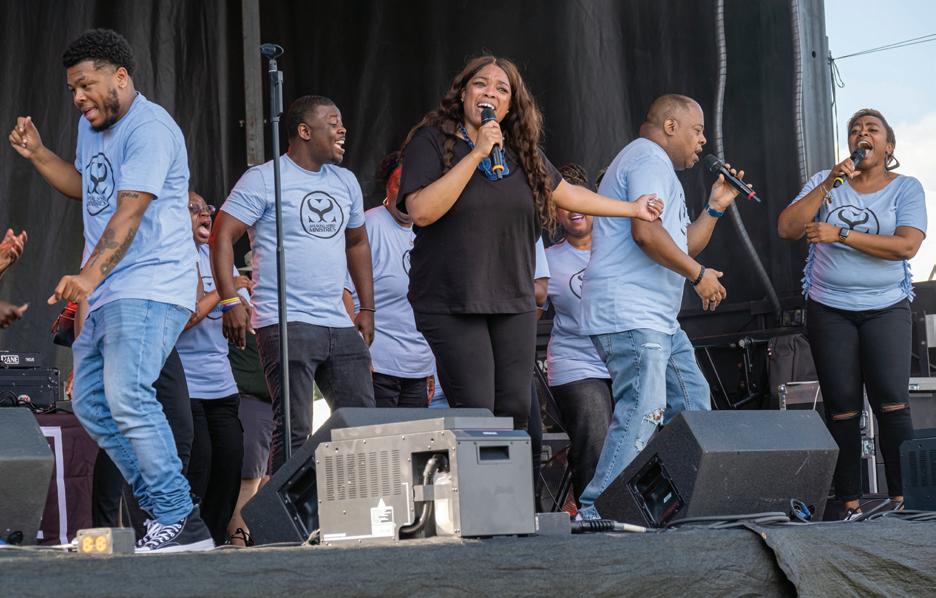

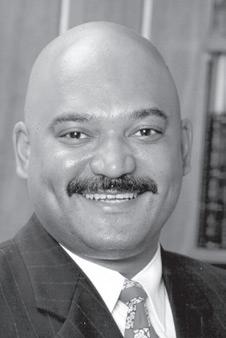


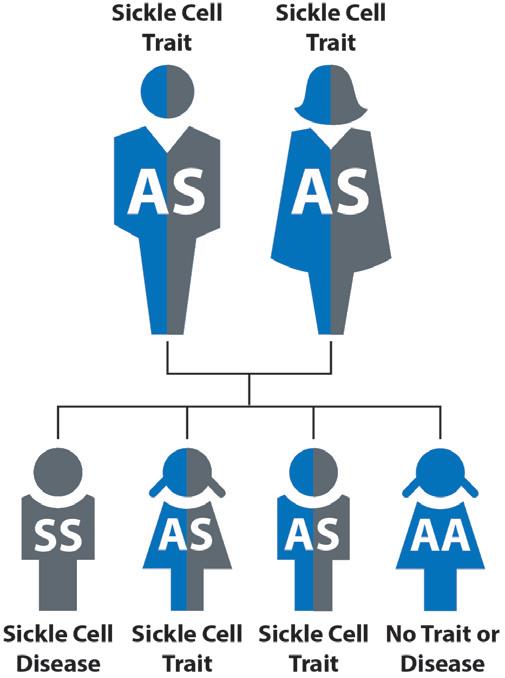





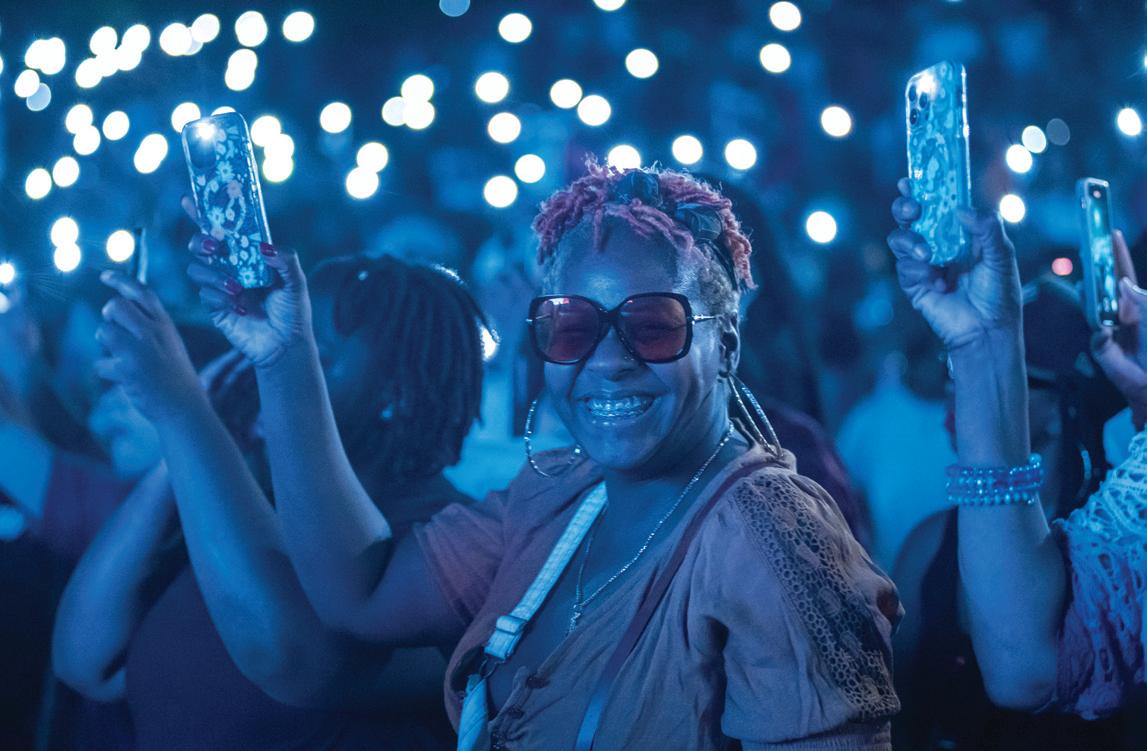
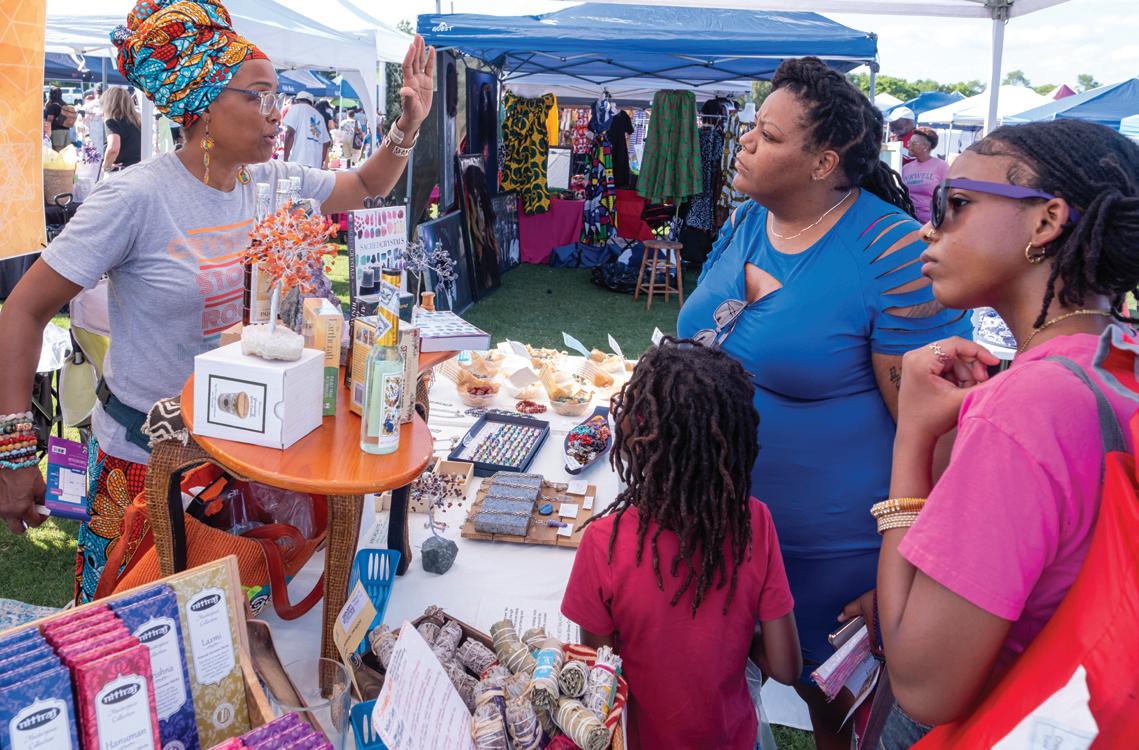








June 20-22, 2024
Over the next few weeks, we will be devoting a portion of our pages to a three-part story called “40 Acres and a Lie.” This project is the result of work by the Center for Public Integrity, the Center for Investigative Reporting and the Investigative Reporting Workshop. The story examines a government program that most African Americans are aware of, a broken promise that people who were enslaved in the South would receive 40 acres of land and a mule. If you think you know this story, you’ll be surprised what the reporters (Alexia Fernández Campbell, April Simpson and Pratheek Rebala) found in their research of land records and documents from the Freedmen’s Bureau, a government agency that assisted free black people in the South, founded in 1860s.
While the details about the government program were long buried and forgotten, the idea of it lived on in Black popular culture, among poets, writers and storytellers. That fact may have been key to helping bring this story into the light. One of the writers of the project says when she ran across the phrase “40 Acres and a Mule” in her research for another project, it struck a chord – only because she remembered it from a song by Nas called “You Owe Me” and from Kanye West’s “All Fall Down.” Yes, we miss old Kanye too. If the writer had been of a certain age, perhaps she would have recalled the name of film director Spike Lee’s production company, “40 Acres and a Mule,” or Gil ScottHeron’s song about waiting for reparation, “The Train From Washington.” When others forgot, the griots remembered.
In the aftermath of the Juneteenth holiday, this is a timely report that reveals new details about the challenges African Americans faced after the news of emancipation. By unearthing the truth about this broken promise, and others, we gain a deeper understanding of the systemic barriers and injustices that still need to be addressed today.
There’s a lot you can learn about a place by looking at how they treat their vulnerable populations, such as senior citizens. Here in Virginia, we’ve got some work to do on that issue. We’re glad our attorney general recognized this and decided to do something about it.
This week, Attorney General Jason Miyares’ office announced the launch of an Elder Abuse Investigation Center. The center was founded to “to address and combat the growing issue of elder abuse and neglect,” according to a statement from his office. If you are a senior citizen or love someone who is, you may be aware of the rise in reports of mistreatment at nursing homes, assisted living facilities and other places.
“This year marks the beginning of the largest surge of Americans turning 65 in our nation’s history. By 2050, nearly one-quarter of the American population will be 65 or older.” Attorney General Miyares stated. As our population ages, rates of elder abuse are expected to rise, but my office is proactively confronting this head-on.”
Families who make the difficult decision to entrust their relatives to strangers in a medical or support facility need the advocacy this office can provide. One out of every 10 Americans over age 65 has been victims of elder abuse, yet only one out of 24 cases are reported to the authorities, according to the National Center on Elder Abuse. The agency will help coordinate the efforts of law enforcement to investigate and prosecute instances of elder abuse.
“Our elderly population will no longer live in fear,” Miyares said at a press conference.
There is still more that needs to be done to protect older people, but this new center shows that taking care of seniors and making sure they are treated with respect is important. As more and more people get older, we need to have robust systems in place to stand up for their rights and keep them safe.

Between 1941 and 1945 some 6 million Jews were systematically murdered across German-occupied Europe during World War II. As part of a statesponsored genocide, two-thirds of Europe’s Jewish population was executed. As a result, those of Jewish faith made it a point to never allow future generations to forget or become desensitized to what happened to the European Jews at the hands of the Nazi regime. “Never again” became a slogan associated with the lessons of the Holocaust, and that slogan appears on many Holocaust memorials. It was used by liberated prisoners at the Buchenwald concentration camp to denounce fascism. As we continue to witness consistent efforts to turn back the clock and “Make America Great Again,” those efforts should be resisted and pushed back with an attitude of “Never again” combined with “Never forget.” In this era of misinformation and the distortion of the truth, the “Never again” slogan needs to resonate throughout Black communities as it does within Jewish populations. Any tragic event against human-
ity should be a stark and constant reminder that extreme dangers of hate, evil and bigotry still exist in both subtle and not-so-subtle ways.
To allow the atrocities associated with the Holocaust, slavery, racial massacres and lynching become a faint memory will be an insult to those who suffered and were murdered.
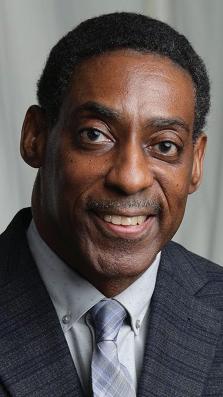
To dismiss the reasons behind their suffering along with the social changes many of them fought for represents a lack of
appreciation for those who personally sacrificed to make our lives as future citizens easier.
“Never again” keeps us guarded to the fact that discriminatory laws from the past can be changed or removed, but that does not automatically change the heart of the individual who embraced them. Therefore, we should never forget men and women like the Rev. James Lawson.
Lawson, who recently passed away, was called to establish the Student Nonviolent Coordinating Committee (SNCC) which sought to organize the spontaneous efforts of tens of thousands of students who began challenging Jim Crow laws across the South. He was a close adviser to Dr. Martin Luther King Jr., who called him
“the leading theorist and strategist of nonviolence in the world.”
The two pastors and civil rights leaders knew from their painful experiences that freedom is never voluntarily given by the oppressor, it must be demanded by the oppressed. This became their justification for the nonviolent direct action campaign.
Lawson led workshops in church basements that taught and prepared John Lewis, Marion Barry, the Freedom Riders and many others to peacefully withstand vicious verbal and physical attacks as they challenged racist laws and policies. Those lessons became instrumental in leading Nashville, Tenn., to become the first major city in the South to desegregate its downtown after hundreds of well-organized students staged lunch counter sit-ins and boycotts of discriminatory businesses. As Lawson was the architect of the nonviolent sit-in protests, his significant contribution was to introduce Gandhian principles to people more familiar with biblical teachings. In doing so, it showed how direct action tactics could expose the immorality and fragility of racist white power structures. In his “Letter from a Birmingham Jail,” King referenced the importance of nonviolent direct action. He wrote, “If this philosophy had not emerged, by now many streets of
Don’t get nervous, young folks, but talk about a national service mandate has been bubbling up again in Washington.
Such talk has been par ticularly vig orous among key advisers to Donald Trump as he begins what he hopes will be his transition back to the White House. Of course, talk of mandated national service is one step away from that dreaded term—the draft.
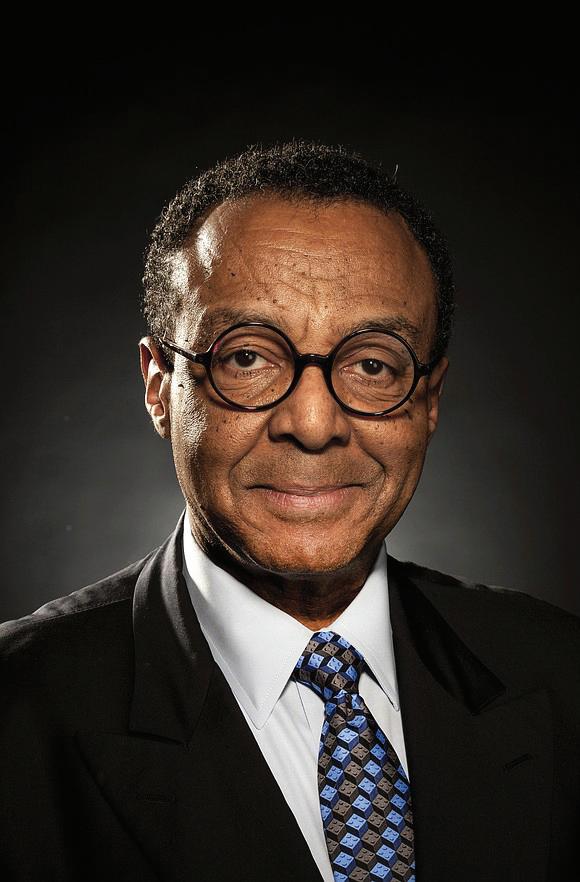
But before any of my younger readers dash away to pack up for Canada, relax, at least for now. It would take an act of Congress to bring back the draft and we’re a long way from that happening. Yet, as crazy as our national politics sometimes is these days, it pays to be prepared for anything.
As The Washington Post reported this week, Christopher Miller, who led the Pentagon during the last tumultuous days of Donald Trump’s presidency, thinks a national service requirement should be “strongly considered.” He detailed his vision for military and civilian readiness as part of Project 2025, the conservative Heritage Foundation’s latest book of federal policy recommendations that they have been publishing for presumptive Republican presidential nominees since Ronald Reagan. Miller, a retired Green Beret, is among the most outspoken about mandating national service and taking other steps to improve military readiness. He sees a “crisis” facing our all-
volunteer military. Although Trump has not formally endorsed this latest Heritage strategy document, he eagerly embraced the organization’s proposals in his first term.
At a time when just 1% of the nation’s population
serves in the armed services, according to the Post, the big readiness challenge continues to be recruitment. The Pentagon fell short of its recruiting goal by about 41,000 last year, the Post reports. Only the Marines and the Space Force met their objectives.
In one startling explanation for the shortfall, the Army cited internal data indicating some 71% of Americans do not qualify for military service for reasons that include obesity, drug use and aptitude.
Yet, as one of the last draftees during the Vietnam War, I know that Washington and the Pentagon don’t want to go back to the days of draft cards except as a very last resort. Besides the problems of physical readiness, there are the morale issues tied to soldiers who don’t want to be there. Any commander, as I learned firsthand, would rather lead a platoon of willing recruits than resentful and begrudging draftees.
Among Miller’s recommendations, he would like to see the Armed Services Vocational Aptitude Battery, or ASVAB, taken in every high school. It’s a multiple-aptitude exam that helps predict future academic and occupational success in the military. More than a million military applicants take it
every year. I can also speak from personal experience about the personal value of the military experience. Besides the physical fitness—that has faded for me over time—I remain impressed and inspired by the level of personal sacrifice my fellow troops were willing to make without giving it a second thought.
The draft ended for Americans in 1973, two years before the war ended, after Congress cut off its funding. No one seems to have been in a hurry to bring it back ever since.
Still, there are some gung-ho
MAGA Republicans who suggest a draft could toughen up a seemingly pampered generation of video game-playing softies. Maybe so, but let’s not press our luck. We’re better off with an all-volunteer military.
The irony of having a possible return of Trump took on an ironic twist with the recent 80th anniversary of the D-Day landing. It brought back memories of how Trump’s role as commander in chief was compromised at times by his multiple deferrals from military service during the Vietnam era thanks to questionable medical claims.
The controversy led Democratic Sen. Tammy Duckworth of Illinois—who lost both legs in combat—to rechristen Trump “Cadet Bone Spurs.”
Somehow I don’t think, despite the entreaties of those on the right who fret about the state of our military, that Trump would endorse something as politically unpopular as a return of the draft. But he’s not the most predictable of candidates.
The writer is a columnist for the Chicago Tribune.
the South would, I am convinced, be flowing with blood.” Those who were part of the nonviolent movement would soon be categorized as extremists. In his letter, King also wrote, “So the question is not whether we will be extremists, but what kind of extremists we will be. Will we be extremists for hate or for love? Will we be extremists for the preservation of injustice or for the extension of justice?”. It became Rev. Lawson’s life mission to preach the power of nonviolent direct action. For that reason, we should remember and appreciate him as an extremist for love and the extension of justice. The purpose of our rage is to follow the example of those before us by being extremists for love and for the extension of justice.
The writer is the founder of the faith-based organization,TRB: The Reconciled Body, and author of the book God Bless Our Divided America.



If you’re truly pro-life, you should be anti-gun June is National Gun Violence Awareness Month, a good time to consider America’s relationship with guns.
In 2022, 48,204 Americans were killed by guns, which are now the leading cause of death among children and teens. Our gun deaths have come to define us in the eyes of the world. You might even say that guns are as American as apple pie.
is that many of these legislators call themselves pro-life.
House Speaker Mike Johnson, a Republican, “pro-life,” “profamily” evangelical Christian, like most in his tribe, opposes even the most popular, common sense restrictions on guns.
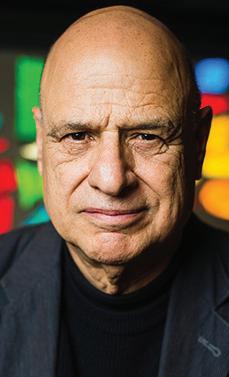
Americans constitute less than 5% of the world’s population, but we own half of the world’s guns, making ours the only country where guns outnumber people and leading to firearm homicide rates here that are seven times greater than in Canada, 19 times greater than in France, 33 times greater than in Australia and 77 times greater than in Germany.
This is American exceptionalism of the most deadly and unimaginable kind, and many people are fed up and want change. According to Pew, 61% of Americans say it is too easy to obtain guns; 69% of Republicans and 90% of Democrats want to increase the minimum age for buying guns to 21 years old; 88% of Republicans and 89% of Democrats support laws preventing those with mental illnesses from purchasing guns.
Yet our legislators do the bidding of the National Shooting Sports Foundation, the National Association for Gun Rights, Gun Owners of America, and the National Rifle Association, which spent $30 million to elect Donald Trump in 2016 and has endorsed him again for 2024. What is most remarkable
Johnson was elected speaker the same day a mentally unhealthy gun enthusiast killed 18 people in a bowling alley and bar in Lewiston, Maine
“At the end of the day, the problem is the human heart, it’s not the guns, it’s not weapons,” Johnson told Fox News’ Sean Hannity a day later.
Whenever I hear Christians trot out the “heart” argument to fend off gun restrictions, I want to ask: “Can you please explain? Are American hearts really 77 times darker than German hearts?”
They called Jesus the Prince of Peace, but today’s politically conservative Christians are more likely to own guns than the average American and less likely to support gun legislation. No surprise, they also claim that America’s gun violence epidemic is caused by anything but guns.
“I don’t think guns are the issue,” said Harrison Butker, kicker for the Kansas City Chiefs, whose hometown Super Bowl Parade was interrupted by gunfire that killed one and injured 20. “I think we need strong fathers in the home that are being great examples for our youths,” he told Catholic channel EWTN.
One “pro-life” leader, James Dobson, blamed the 2012 kill-
ing of 26 people at Sandy Hook Elementary School on God’s judgment against America for accepting abortion and gay marriage. “We have turned our back on the Scripture and on God Almighty and I think he has allowed judgment to fall upon us,” he said.
One “pro-life” group blamed the 2023 shooting that killed six at a Christian school in Nashville on “a woman who identifies as a transgender man,” “some sort of demonic possession” and the fact that the Biden White House “has two men who wear dresses” (an apparent reference to trans people working in the administration). Tennessee legislators rebuffed Christian parents’ pleas for gun control.
“Pro-life” voters regularly vote for representatives who feature AR–15s in their Christmas card photos and who back legislation that would make the AR–15 “the National Gun of the United States.”
Thankfully, Shane Claiborne offers a better approach: “Some say gun violence is a heart problem,” he says. “Others say it’s a gun problem. I believe it’s both.”
Shane was a student of mine at Eastern University, and we’ve worked together over many years on the Red Letter Christians movement, books, tours and other initiatives. Years ago, Shane told me God was calling him to focus on gun violence. I asked him to explain.
“Too many lives that are made in the precious image of God are cut short because of guns,” he told me. “And it doesn’t have to be this way.”
He pursued this calling followed with a 2019 book, “Beating
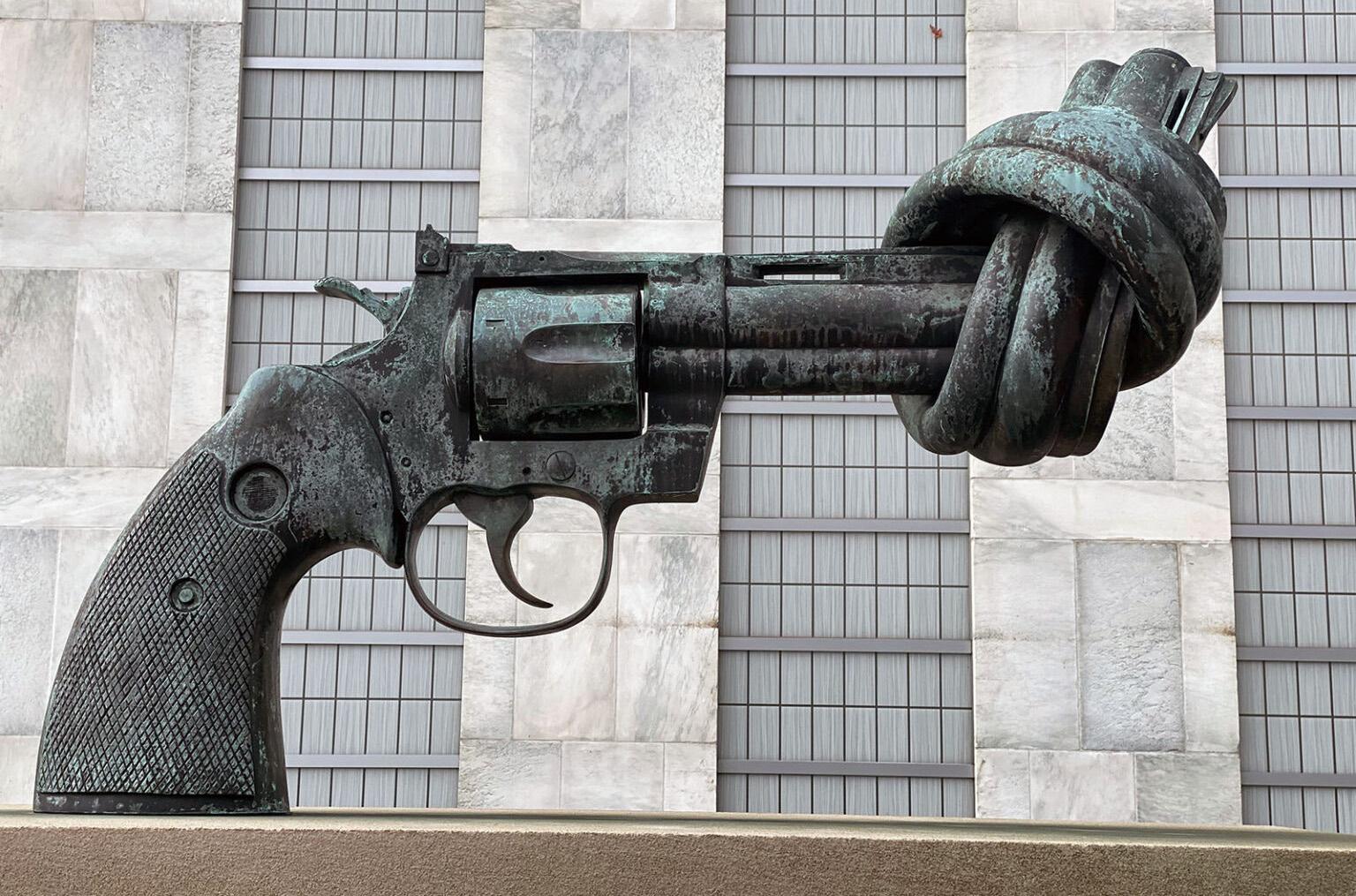
Guns,” and a national tour with a Mennonite blacksmith who turned guns into garden tools or musical instruments. Shane also transforms gun advertising into artwork
Shane now holds nearweekly events in Philadelphia and around the country to remove guns from city streets. The events provide a safe and “sacramental” space for those whose lives have been shattered by gun violence. One mother said: “I understand something I hadn’t understood before. God knows what it feels like to lose a son.”
Shane’s work sounds pretty pro-life to me. I believe that those who want to be truly pro-life need to do more than oppose abortion. They need to make principled, pro-life stances
against war, the death penalty, climate change and America’s unusually easy access to guns.
It’s true, guns don’t shoot themselves. People pull triggers. That’s why we should all support laws that keep triggers away from troubled souls like the man who shot up Lewiston.
Guns have held a powerful allure for many since America’s founding, and the socialization process starts early. Children use toy guns to mimic the heroes they see on TV and in movies and video games. Boys with guns pretend to be real men, settling disputes with violence.
Most adult gun owners cite “protection” as a key concern, but the presence of a gun in the house can endanger all within, particularly one vulnerable
group. Year after year, the majority of America’s gun deaths are suicides, not murders. In 2021, 26,328 Americans used guns to kill themselves.
“People who use guns to kill themselves often succeed, so they’re not given a second chance,” Shane said. “People who don’t have access to guns are more likely to survive a first suicide attempt, and to reconsider.” Perhaps all of us should reconsider our country’s complicated — and deadly — relationship with guns this June as part of National Gun Violence Awareness Month. The writer is the professor emeritus of sociology at Eastern University and the author of the forthcoming “Pilgrim: A Theological Memoir,” written with Steve Rabey.
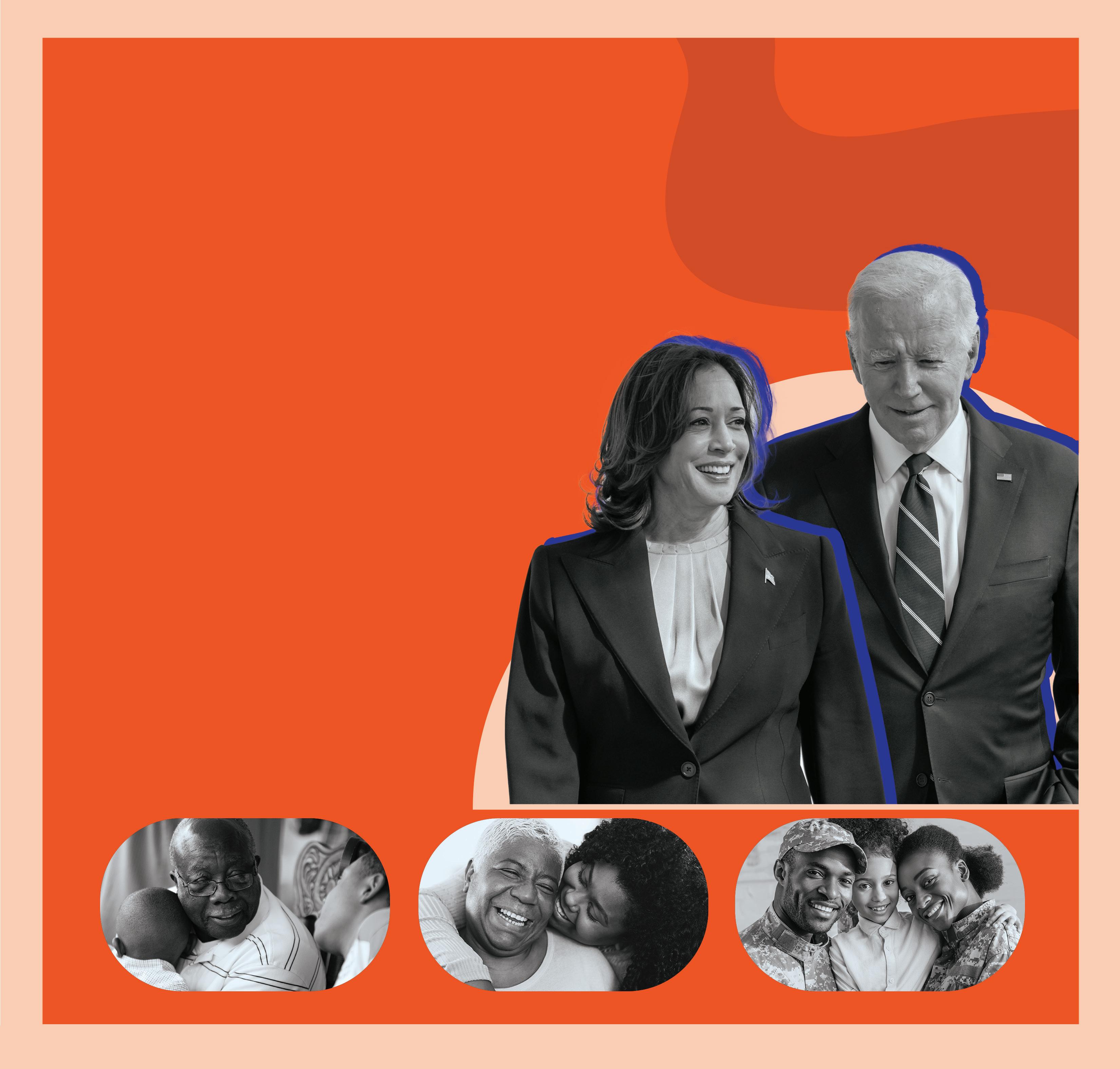
African American women have made a huge impact on Olympic gymnastics, with Gabby Douglas, Jordan Chiles and Simone Biles as shining examples of their dazzling skill sets. Now it’s Frederick “Fred” Richard’s turn to try and draw more attention to the men’s competition.
“The Olympics is on that goal sheet of mine,” the 19-yearold Richard said after his eyebrow-raising performance at the 2023 World Gymnastics Championships in Antwerp.
“Bringing home a medal is a big goal, but also to show my potential on the brightest stage.”
At worlds, Richard took the bronze overall medal facing the top gymnasts and helped the U.S. to a team bronze.
In April at the NCAA Championships in Maryland, he won the all-around gold along with golds on parallel bars, horizontal bar and rings for Michigan.
A month ago at the U.S.

Championships in Fort Worth, Richard was second to Brody Malone. Khoi Young, who is also Black, finished third. Richard’s talent earned him
nicknames “Frederick Flips” (his social media handle) and “Fearless Fred” for attempting crazy skills few others would dare.
Next are the U.S. Olympic Trials on June 27-30 in Minneapolis, then the Paris Olympics from July 26-Aug. 11. The Boston suburb native
became interested in gymnastics at age 4, following an older sister into the sport.
“After watching these kids doing crazy skills, I’d go home and start flipping on my parents’ bed ... landing on my head,” Richard said. “My parents saw that and thought they had to get me into the sport, too.”
Starting at Somersault Gymnastics, he quickly graduated to Massachusetts Elite Academy, going from local to national and
international competitions. In 2021 and 2022, he was the junior all-around gold medalist at the Pan American Games in Mexico and Brazil. Women, frequently Americans, have dominated Olympic gymnastics media attention for a century with their dazzling skill sets and will likely continue. It will take a lot to change that, even slightly. “Frederick Flips” might be the one to do it.
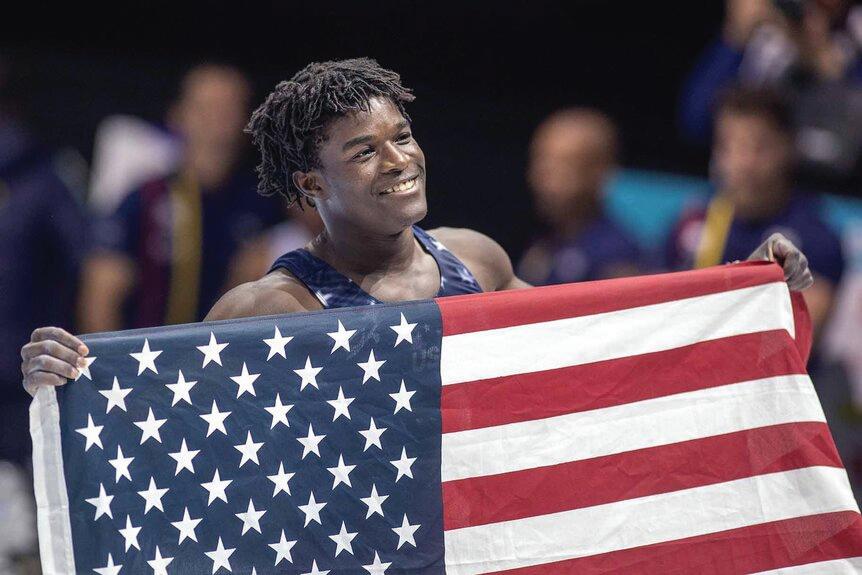

Birmingham’s Rickwood Field, now 104 years old, is back in the news. Regarded as America’s oldest professional ballpark, Rickwood will be front and center later this month.
On June 20, the San Francisco Giants will face the St. Louis Cardinals in a Major League game honoring African American heritage. This is in conjunction with Juneteenth celebrations.
Opening in 1910, Rickwood served as the home diamond for the white Birmingham Barons and the Black Barons, a Negro Leagues affiliate.
Among the most celebrated athletes to suit up at Rickwood is the late Willie Mays, who broke into pro ball there as a 17-year-old outfielder in 1948. Mays was born

Former Virginia Union University defensive stalwart William “Dil” Dillon is among the nominees for the College Football Hall of Fame, Class of 2025. Dillon, who died in 2017, was a three-time Associated Press Little All-American and two-time CIAA Defensive Player of the Year under Coach Willard Bailey. The Detroit native intercepted 30 passes as a Panther, helping VUU to CIAA titles in 1979, 1981 and 1982. The Panthers went 36-8-1 in his four seasons.
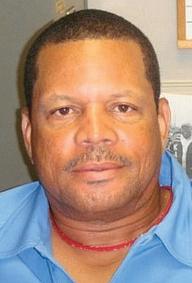
Hampton University Coach Gideon Smith. Smith coached the Pirates from 1921 to 1940, posting a 102-47-13 record with four CIAA crowns.
The Michigan State University graduate had short coaching stops at West Virginia State and Virginia State before arriving at Hampton.
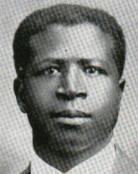
Following a long tryout with the NFL’s Seattle Seahawks, Dillon went on to become one of the area’s most powerful softball sluggers and a prominent high school basketball official. Also nominated for the prestigious Hall of Fame is legendary
Both VUU and Hampton share a College Football Hall of Fame member in Coach Joe Taylor, Class of 2019. Currently a top VUU athletic administrator, Taylor posted a record of 60-19-3 at VUU, 13649-1 at Hampton and 35-19 at Florida A&M.
Final selections, made by the National Football Foundation, should be announced early next year. The Class of 2025 inductees will be honored Dec. 10 in Las Vegas.
Virginia Union University has earned a national football reputation. Looking ahead, it plans to polish that status this coming season.
Coach Alvin Parker’s Panthers have been selected 14th in Lindy’s Sports’ annual preseason Top 25 ranking for NCAA Division II. It marks the third straight season that VUU has been nationally ranked to start the campaign. Based in Birmingham, Ala., Lindy’s
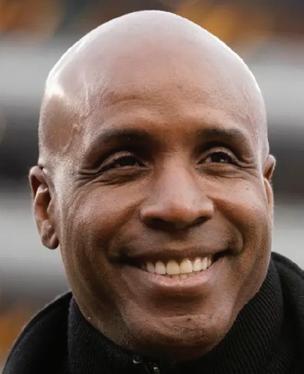
in Westfield, Ala., some 70 miles from Birmingham. Rickwood was used for scenes in the movie biopics for Jackie Robinson (“42”) and Ty Cobb (“Cobb”). It was also used for the 1996 TV film “Soul of the Game.”
The current Birmingham Barons, a Double-A affiliate of the Chicago White Sox, plays at Regions Field, also in downtown Birmingham.
Both the Giants (founded in 1883) and Cardinals (1882) went many decades without a Black player. The Giants broke their
color line in 1949 with outfielders Monte Irvin and Hank Thompson. Mays came along in 1951. The Giants moved to San Francisco in 1958. St. Louis’ first Black player was first baseman Tom Alston in 1954.
Since 2008, the Richmond Flying Squirrels have been the Giants’ Double-A affiliate. Famous African American players in Giants lore include Hall of Famers Mays and Willie McCovey, home run king Barry Bonds and Dominican pitcher Juan Marichal. Bonds’ father Bobby also starred for the Giants.
There will be no Mays on June 20 at Rickwood, but shortstop Masyn Winn, 22, looms as a star for the Cardinals. The Texas native was hitting .306 in early June.
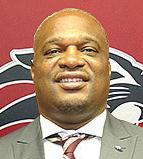
is a sports magazine that covers a variety of athletics.
“We want to thank Lindy’s for this huge honor,” Parker said. “The standard has been set and all of the guys are working hard to meet and exceed that level.”
Anyone planning to travel to Atlanta for the Celebration Bowl will need to arrive a week earlier than expected.
Originally slated for Dec. 21, the game billed as the “Black National Championship” will be Dec. 14 instead. Kickoff at Mercedes-Benz Stadium will be at noon, with ABC television providing live coverage.
Television ratings are the key to the switch. The expanded 12-team NCAA playoffs will start Dec. 21 with three games at noon, 4 and 8 p.m. That same day the NFL will showcase two marquee matchups – Kansas City vs.

VUU is coming off a 10-2 season in which it won the CIAA title and advanced to the NCAA playoffs. The Panthers outscored their opponents by an average of 36-14 and outgained them 373 yards to 233 per game. The only other historically Black college or university in Lindy’s poll is No. 25 Benedict, the defending SIAC champion.
VUU will open its season Aug. 31 at Kentucky State.
Houston and Baltimore vs. Pittsburgh.
The only ratings competition on Dec. 14 will be the Camellia Bowl in Montgomery, Ala., not exactly a mustsee event. This will be the ninth Celebration Bowl pitting the champions of the MEAC and SWAC. The MEAC leads the series 6-2, although Florida A&M won last year, defeating MEAC champ Howard. Norfolk State is a MEAC member, but the Spartans have never qualified for the event.
With education as the family business for three generations, Cheryl Lewis Burke’s career path may have been etched from an early age. Both her parents and all of her aunts were educators, but it was her experience growing up in a segregated Powhatan County that shaped her calling to the field of education. She was resolute in her mission to empower African American students through education. Her tenure at Clark Springs Elementary, where she successfully catered to the unique needs and learning styles of students from Gilpin Court and Mosby Court, stands as a testament to her dedication and effectiveness. Later in her career, Burke became the principal of Chimborazo Elementary School. As an under-resourced and underfinanced school, she tapped into personal relationships and community members to form over 300 partnerships with organizations to help. These partnerships provided assistance for the school, including the creation of an outdoor classroom and the acquisition of musical instruments for the school’s band. The school eventually attained full state accreditation and made yearly progress on standardized tests.
After 38 years in the Richmond Public School System, she retired in 2014, but her work as an educator didn’t end. She is the 7th District representative on the Richmond School Board, holds several other community boards of director roles—the board of trustees of The Richmond Ballet of Virginia, the board of directors of Big Brothers Big Sisters of
Greater Richmond, and the HistoryMakers National Advisory Board.
As the honorary chair of the 13th Annual Jazz Inside Out, Burke is lending her esteemed name and commitment to the cause. Her role as an educator and her deep desire to provide students with the keys to advancement through education continue to guide her, even in retirement.
The Virginia Higher Education Fund is committed to providing financial assistance to underserved or economically challenged students as they pursue higher education. The organization offers a comprehensive range of support, from mentoring and emergency aid to dorm kits and books, ensuring that no student is left behind in their educational journey.
The 13th Annual Jazz Inside Out, will take place at the Virginia Museum of Fine Arts on Saturday, July 6. The event, featuring The Krewe Band and James Saxsmo Gates & Quinton Jones, is an opportunity to support college-bound students in need and enjoy some local jazz. Tickets are available at vahigheredfund.com.
Meet a retired educator still working to help students and this week’s Personality, Cheryl Lewis Burke:
Volunteer position: Honorary chair, 13th Annual Jazz Inside Out, benefitting the Virginia Higher Education Fund.
Occupation: Richmond School Board Representative, 7th District.
Date and place of birth: June 16 in Powhatan County. Where I live now: Church Hill.
Education: Bachelor’s in
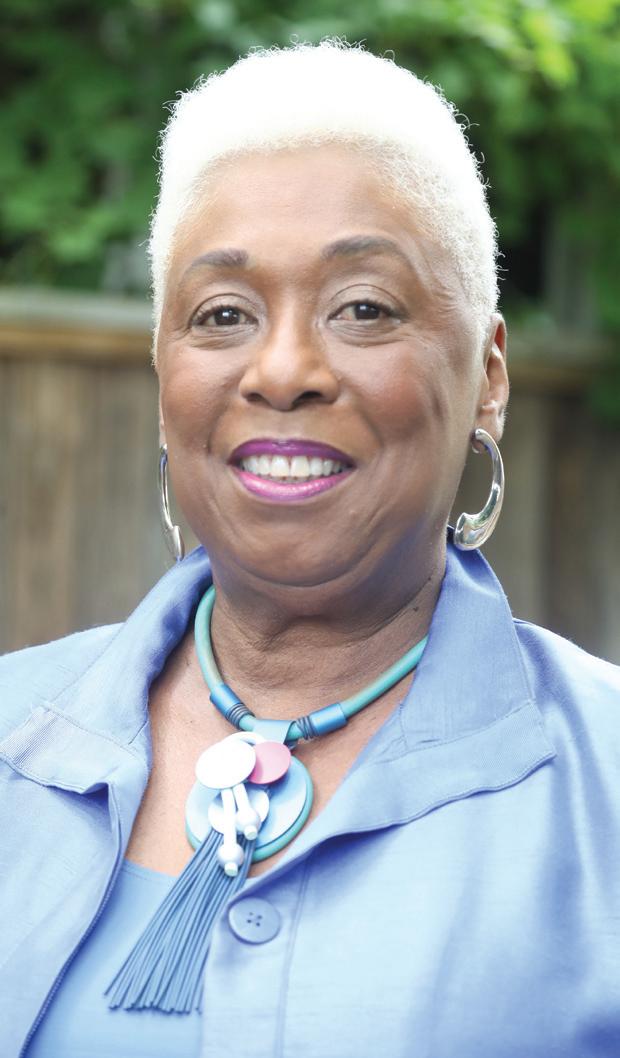
early childhood education and master’s of education in supervision and administration of education.
Family: Husband, two sons and three grandchildren.
Tell us about the Virginia Higher Education Fund (VHEF): We are a nonprofit dedicated to increasing higher education numbers for underserved high school students or students with adverse challenges such as poverty, homelessness or medical conditions. We provide college prep workshops, dorm kits, scholarships, books, emergency aid and mentoring activities to Richmond area students seeking higher education.
When, where and why VHEF was founded: Rose M. Giles founded VHEF in 2010 in Henrico County to provide opportunities for underserved young adults who have experienced poverty and homelessness.
Why this organization is meaningful to me: I believe education is a powerful weapon that can change the world. This organization actively supports each awardee with the tools they need to prosper.
Why I accepted the position as honorary chair: It is an opportunity for me to serve our youths as they aspire to be successful.
No. 1 goal as honorary chair: My goal is to spread the word and get as many people as possible to support and celebrate our youths.
Why this event is a hot ticket: VMFA is the ultimate venue. Guests can mingle in the atrium or on the terrace overlooking cascading waterfalls and beautiful gardens.
How the event will benefit scholarship recipients: All proceeds will provide college prep workshops, financial assistance and dorm kits for scholarship recipients in Richmond and more than 10 counties.
Anticipated number of students to receive help: Approximately 25 students will receive scholarships in 2024. Additionally, 20 first-generation college students will receive dorm kits with comforters, pillows and towels.
VHEF partners with: An array of local and national companies and people, including the Virginia Museum of Fine Arts, NBC12, Dominion Medical Associates, Virginia Tourism Corporation, Virginia Lottery, Spider Management, Davis Brothers Construction Company, JB
Best late-night snack: Popcorn
Something I would love to do that most people would never imagine: I would travel to every continent. I’ve traveled to four continents. Three more to go!
My music playlist: Jazz, gospel and R&B.
My inspirational quote: “Meet people where they are, not where you want them to be.”
The best thing my parents ever taught me: My parents reminded me daily to have faith the size of a mustard seed.
The people who influenced me the most: My parents — Edward and Octavia Lewis. Book that influenced me the most: “The Power of Positive Thinking” by Norman Vincent Peale
Next goal: I want to continue to serve on behalf of every child.



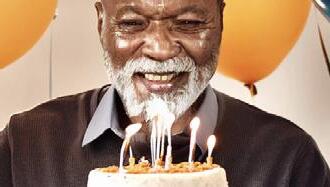
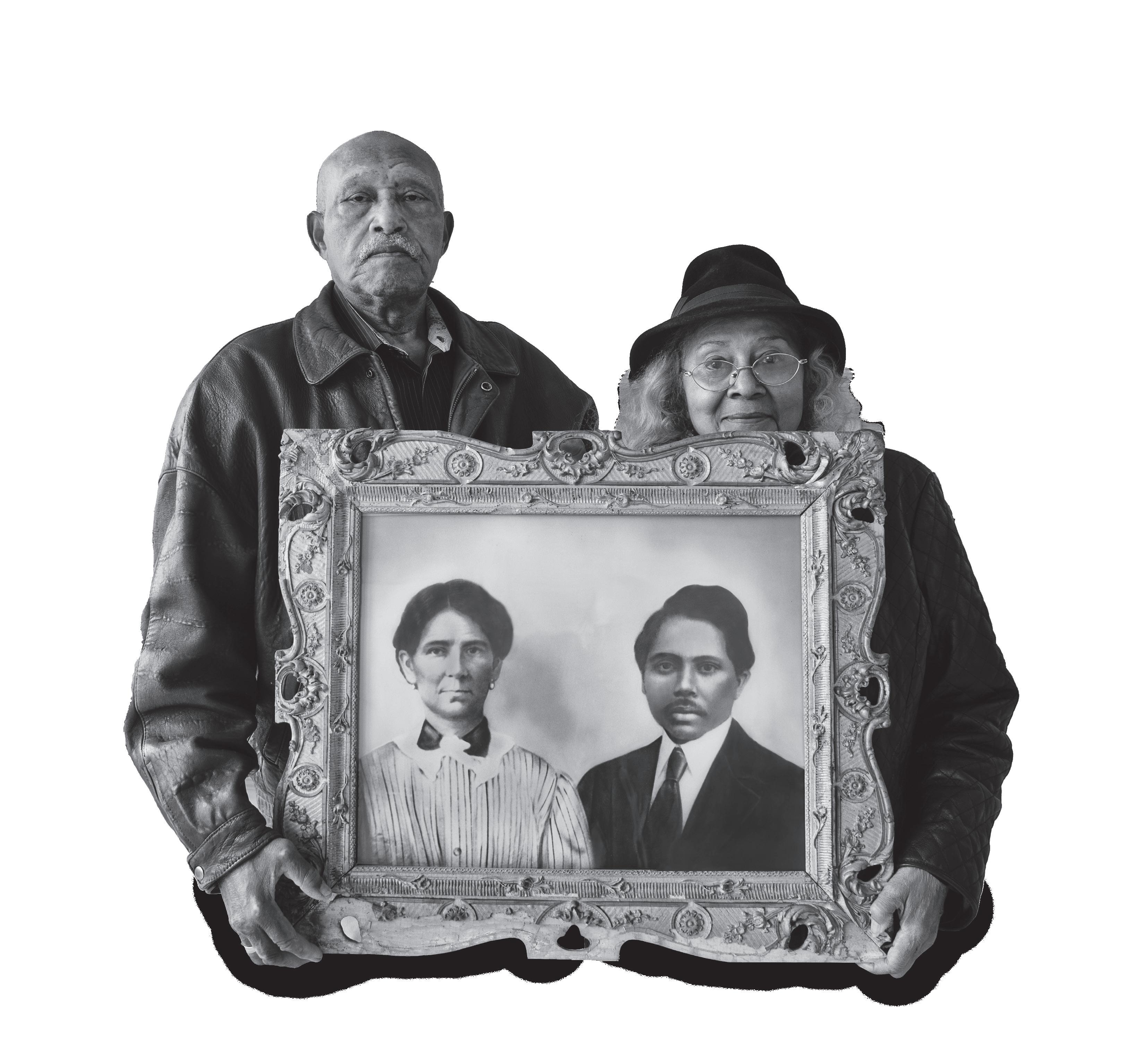
She made a single gospel soul record in the 1970s with her brothers, when they were all teenagers. Then Annie Brown Caldwell moved on with her life.
Decades later, she was running a clothing store in a tiny Mississippi town and singing on weekends with her husband and children when she got a call from a label founded by David Byrne. They wanted to add a single from her first band, the Staples Jr. Singers, to a compilation record.
That 2019 call led to more — the Luaka Bop label reissued the band’s 1975 record “When Do We Get Paid,” drawing rave reviews in 2022 for its raw sound and mix of blues, funk and soul. And soon the Brown siblings, now in their 60s, found themselves on a course that would make any rising pop star jealous.
In the past four years, they flew for the first time, toured Europe four times and played hipster clubs like Brooklyn’s Baby’s All Right. And, finally last year, they saw a performance by Mavis Staples, whose group The Staple Singers inspired their own early sound with genre-busting, socially conscious Stax Records hits. Also a band of siblings, they covered several of their songs.
“It’s been a dream come true,” said Brown Caldwell, who was 11 when she and R.C. and Edward, who were 12 and 13, co-founded The Staples Jr. Singers in 1967. They started playing in the church where their mother was a preacher and father a deacon, and toured by van around the South.
And on Friday, the Browns are releasing “Searching,” their first batch of new songs in nearly 50 years, and gearing up for a tour in July to the Roskilde festival in Denmark as well as the Netherlands, Slovakia and Germany.
“It’s a blessing,” Brown Caldwell said. “It feels good. We are getting older and it seems the Lord just now is blessing our youth like it’s brand new again.”
Their resurgence began with a record collector who stumbled on their first single in a Midwest thrift store and bought it for $1.
Greg Belson, whose gospel collection fills three rooms in Los Angeles, was intrigued that the band’s name was so similar to The Staple Singers. He put “We Got a Race to Run” on a portable turntable he often brings with him, and was struck by their sound: “It sat completely in the wheelhouse of what I look for, which is specifically gospel with a soulful tinge, rather than what I would say more classical church-
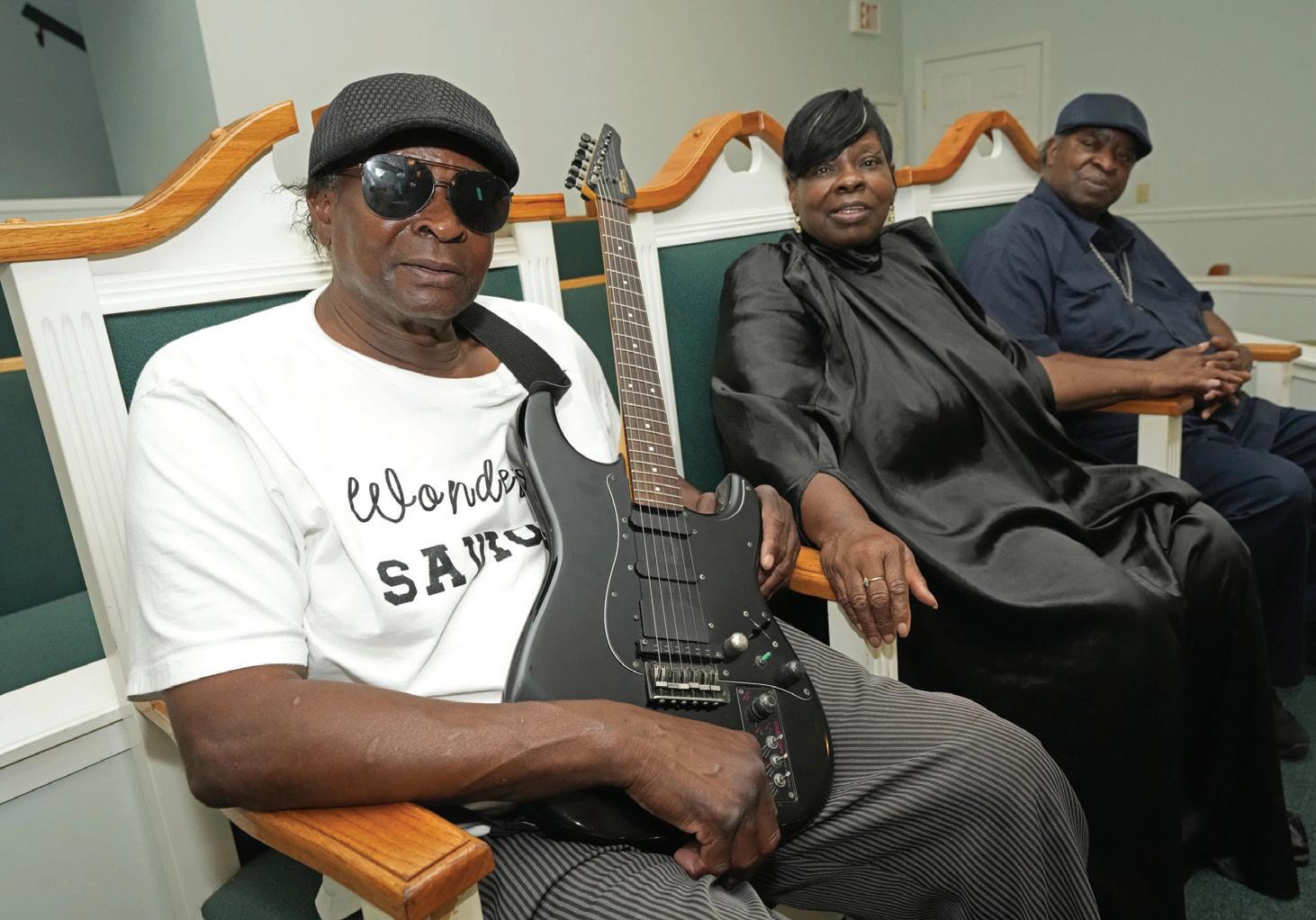
based gospel,” Belson said.
Yale Evelev, the president of Luaka Bop, heard Belson’s radio show and pulled from his collection for a compilation of 1970s gospel soul songs called “The Time For Peace Is Now.” He wanted to include the Staples Jr. Singers single, but first he had to find the band. He figured out that Annie Brown was now Annie Caldwell, and called all seven listed in Mississippi.
Like Belson, Evelev was attracted to a gospel sound that isn’t heard much on the radio these days. “These are soul records really,” he said. “Soul records with a message. That message imbues the performance with a certain underlying intensity and honesty.”
He reached Brown Caldwell on the last call.
“I never believed that this record would come up again,” Brown Caldwell said. “For real though. Is this for real?”
She agreed to put the single out but her brothers were initially resistant, and they balked at reissuing “When Do We Get Paid.” Only a few hundred original copies of the record exist, one of which Belson bought off a Milwaukee collector for $600.
“There was a lot of family drama that was happening that had existed for a long time,” Evelev said. “We kind of ended up in the middle of it, and it was a lot of back and forth and a
Throughout June, a variety of public events will commemorate the fourth national Juneteenth holiday. These events aim to recognize and celebrate this important occasion in different ways. The Forgotten Soldiers of Juneteenth
The story of the 116th United States Colored Troops of Dutch Gap Canal, a portion of which helped spread the news of emancipation, are featured in a three-day exhibition.
Organized by: Henricus Historical Park
Where: Henricus Historical Park, 251 Henricus Park Road
When: Thursday, June 20 to Sunday, June 23, from 10 a.m. to 5 p.m.
Cost: $8- $12, free for Henricus members
Information: henricus.org
Juneteenth and the Carter Family Farms
The teaching farm will be the site for an educational experience on the history of the African American farm and Juneteenth itself.
Organized by: Michael Carter Jr. and the Carter Family Farms
Where: Chesterfield Baptist Church, 16520 Hull Street Road
When: Thursday, June 20, from 1 to 2:30 p.m.
Cost: Free with registration
Information: tinyurl.com/Carter-Farms
Hanover Branch NAACP’s Annual Juneteenth Celebration
Live music and food around Randolph-Macon College’s Brown Fountain Plaza.
Organized by: Hanover Branch NAACP
Where: Randolph-Macon College, 204 Henry St.
When: Saturday, June 22, from noon to 5 p.m.
Cost: Free.
Information: rmc.edu
Juneteenth Celebration presented by The Love Movement
Performances by Mighty Joshua, JTucker and the Krewe and the City Dance Theater in Scott’s Addition.
Organized by: The Love Movement Social Event Series and the Black History Museum and Cultural Center of Virginia
Where: Brambly Park Winery, 1708 Belleville St.
When: Sunday, June 23, from noon to 7 p.m.
Cost: Free
Information: bramblypark.com
Chesterfield Juneteenth Pop-Up Night Market
A family-friendly evening of shopping, arts and food with music from DJ Melvin Gates, Eddie Gray and the Elonce Band.
Organized by: The Perkinson Center for the Arts and Education
Where: The Perkinson Center for the Arts and Education, 11810 Centre St.
When: Saturday, June 29, from 5 to 9 p.m.
Cost: Free
Information: chesterfield.gov
lot of yelling at each other.”
They worked it out, and agreed to perform four shows in New York in 2022. Evelev heard some songs that weren’t on their 1975 record and asked if they had any unreleased music. It turned out they recorded about a dozen songs in Muscle Shoals in the 1980s.
Evelev brought in Ahmed Gallab, who performs as the artist Sinkane, as a producer, and he recorded them over two nights in a Mississippi church where they sat in a semi-circle or in the pews as they played. Gallab then went
to Nashville to mix it and do some overdubs, aiming to have the songs “ring as true as possible” to when he first heard them play.
Like their first album, “Searching” weaves its gospel message with blues guitar and influences ranging from boogaloo to swamp music to rhythm and blues to soul.
A world-weariness comes through in songs like the lead track, “Living In This World Alone,” with Brown Caldwell lamenting how she misses her mother and tries to “live free from sin” without her.
“I can listen to their voices and hear the stories that they’re talking about and really understand them,” Gallab said. “That’s the one thing that’s really sets them apart, especially when Annie sings. She’s just telling you a story.”
The band members — now four generations of the Brown family — shrug off their newfound celebrity. On the latest record, R.C. plays guitar and the two other siblings sing. Edward’s son sings backing vocals, R.C.’s son plays bass and R.C.’s grandson plays drums.
They still live in Aberdeen, a town of 5,000 along the Tombigbee River where they grew up and where Edward and R.C. retired from factory jobs. All three insist their mission remains the same as it was all those years ago — to spread the word of God and inspire listeners to follow his path.
Edward Brown said he rarely hears anything good on the radio anymore and worries about younger generations turning to gun violence. So he is doing his part by singing and trying to “touch people” with his life story.
“You have to do what God said do,” he said. “When




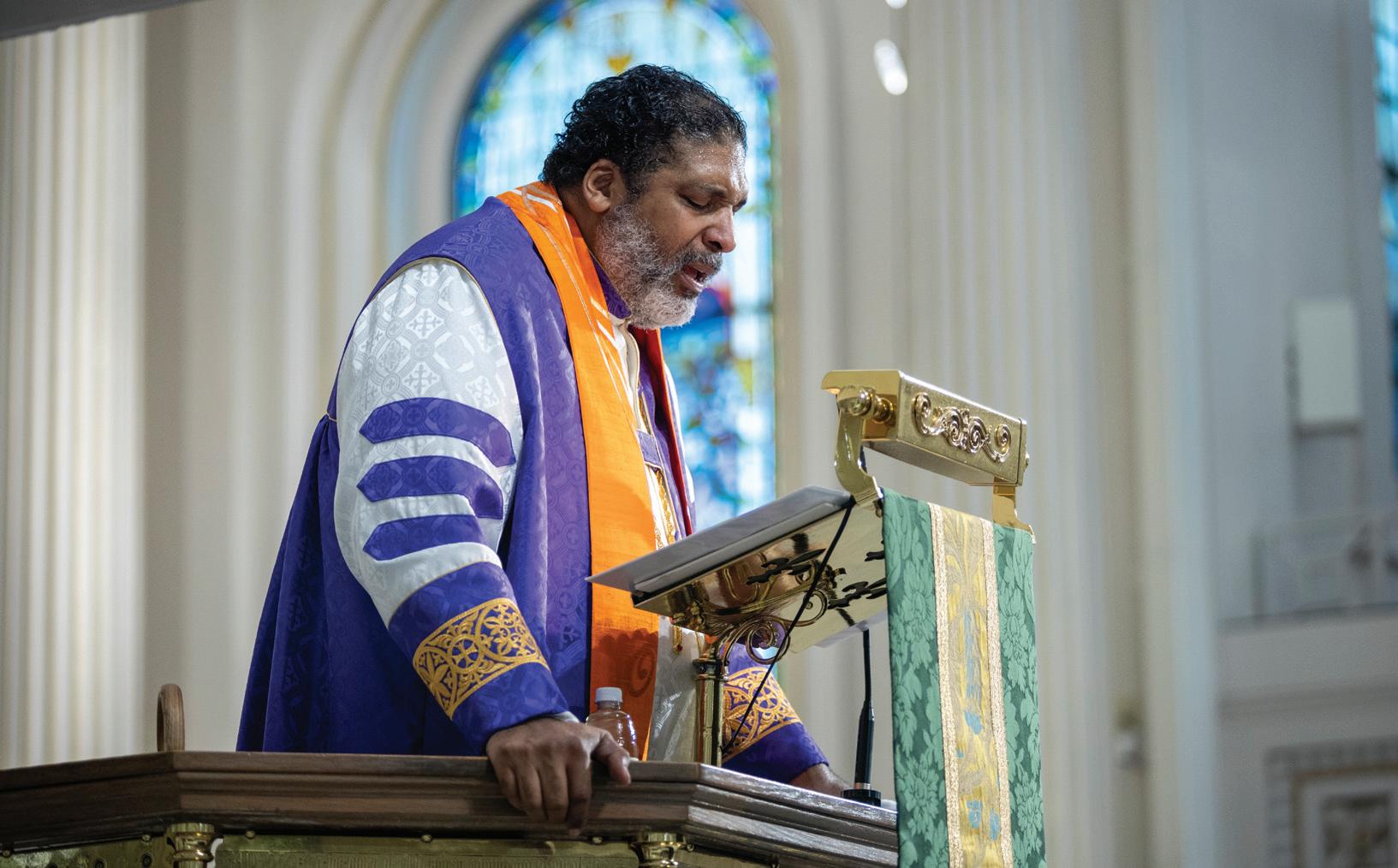
The Virginia Faith & Freedom Coalition recently announced that Will Archer, a pastor with over 30 years of experience, has been elected as their new chairman. VAFFC is the Commonwealth of Virginia’s affiliate with the Faith & Freedom Coalition, a national conservative political advocacy non-profit.
“I look forward to working with the Virginia Faith & Freedom Coalition in developing and promoting policies devoted to strong communities through economic development and strengthening Virginia’s commitment to pro-family legislation,” Archer stated..

Archer is the lead pastor for the Potomac Valley Church, based in Northern Virginia, and also serves as chairman of the Faith in the Virginia Political Action Committee. A graduate of Arcadia University and Wesley Theological Seminary, Archer is a coctoral candidate at the Virginia Theological Seminary in Alexandria.
By Bob Smietana Religion NewsPaul Pressler, a leading figure of the Southern Baptist Convention who was accused of sexually abusing boys and young men and later settled a lawsuit over the allegations, has died. He was 94.
Pressler’s death, which happened on Friday, June 7, 2024, was announced in an obituary posted online by Geo. H. Lewis and Sons Funeral Home in Houston. A funeral service for Pressler was held Saturday. A cause of death was not disclosed.
At St. Paul’s Episcopal Church on June 9, Bishop William Barber II, co-chair of The Poor People’s Campaign, rallied the congregation during a sermon as part of his national preaching tour.
True worship is not what we do on Sunday or Sabbath,” Barber said. “True worship is understood by what we do on Monday, after worship.”
The Poor People’s Campaign is mobilizing supporters for a major demonstration in the nation’s capital later this month aimed at demanding action on poverty, living wages and other policies. The Mass Poor People’s and Low-Wage Workers’ Assembly and Moral March is set for
Baptist News Global Pressler was one of the co-architects of the Southern Baptist Convention’s “conservative resurgence,” an effort in the 1980s that reshaped the direction of America’s largest Protestant denomination. Pressler and others pushed out more liberal leaders, helped forge an alliance between white evangelicals and Republican conservatism and focused on electing GOP candidates to public office.
10 a.m. June 29, Saturday, in Washington.
The march has over two dozen national partners, including the Congressional Progressive Caucus Center and National Council of Churches representing over 60 million people. Its focus is millions living in poverty or low wages and a 17-point agenda seeking living wages, voting rights and other policy goals. Organizers intend to continue the campaign through the 2024 general election. Barber underscored the high stakes — reshaping political priorities for a more equitable future, during his sermon.
“These are times when
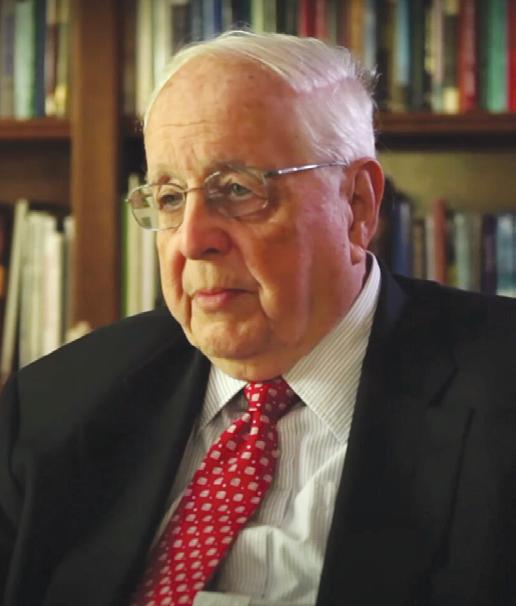
The Virginia Faith & Freedom Coalition will attend the National Faith & Freedom’s Road To Majority Conference 2024 in Washington, D.C., from June 20 to 22. Gov. Glenn Youngkin and Attorney General Jason Miyares will speak at the event.




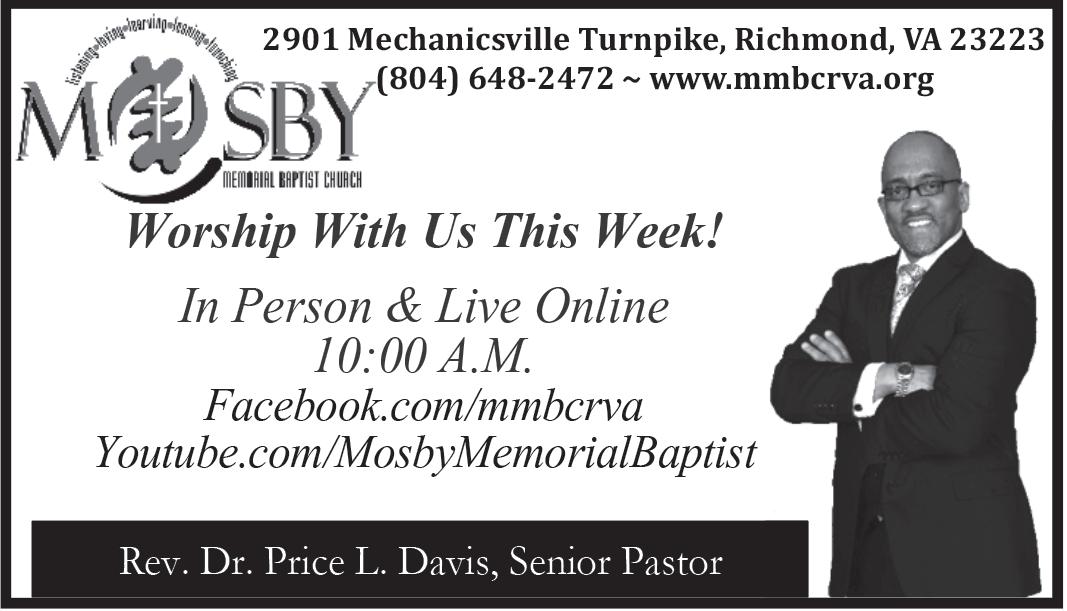
The news of Pressler’s death was first reported by
The Southern Baptist Convention has over 47,000 churches, with a total membership of nearly 13 million people, according to its website. As many as 200 are
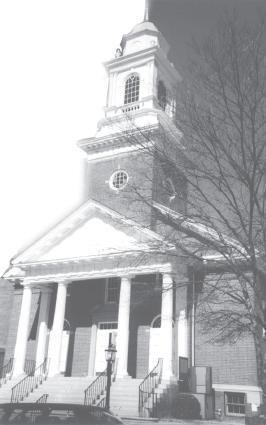



counted as “mega-churches” but the vast majority have less than 200 people in weekly worship. Most of its churches are located in the southern U.S.
The denomination’s executive committee is headquartered in Nashville, Tennessee.
In a 2015 video in which he endorsed U.S. Sen. Ted Cruz during his failed presidential run, Pressler said he’s dedicated his life “to the conservative principles on which our country was founded.”
“I think that people are genuinely upset with the directions in Washington. I
believe if we do not have good people in Washington, we are not going to save our nation,” Pressler said. But Pressler’s religious legacy was stained after he was accused by a former assistant, Gareld Duane Rollins, of sexual assault. In a lawsuit filed in 2017 in Harris County, where Houston is located, Rollins alleged that Pressler raped him when he was 14 years old after the two met at a Bible study group led by Pressler, according to court records. Rollins alleged that Pressler continued to periodically sexually assault him over the next 24 years.
The Associated Press usually does not name victims who allege sexual assault or abuse but Rollins and his lawyers publicly identified him in court documents. Rollins also sued the Southern Baptist Convention and others whom he alleged covered up or enabled Pressler’s behavior. As part of the lawsuit, at least seven other men also came forward with their own accusations against Pressler.
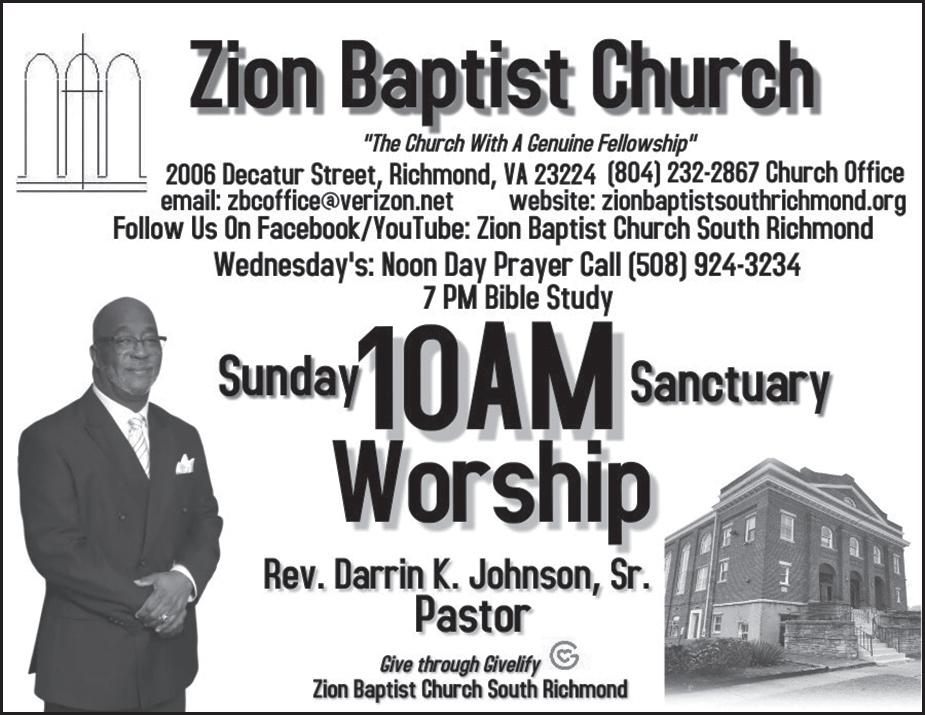

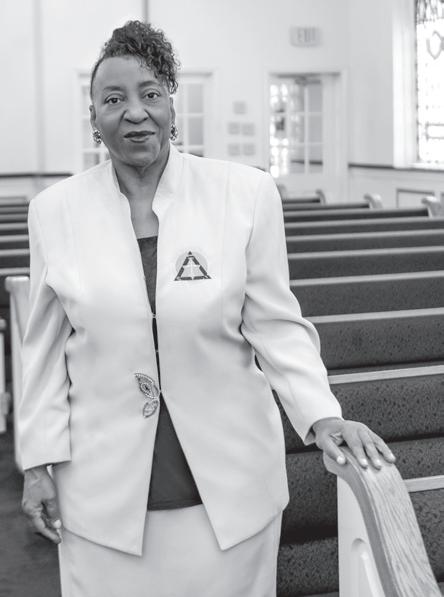





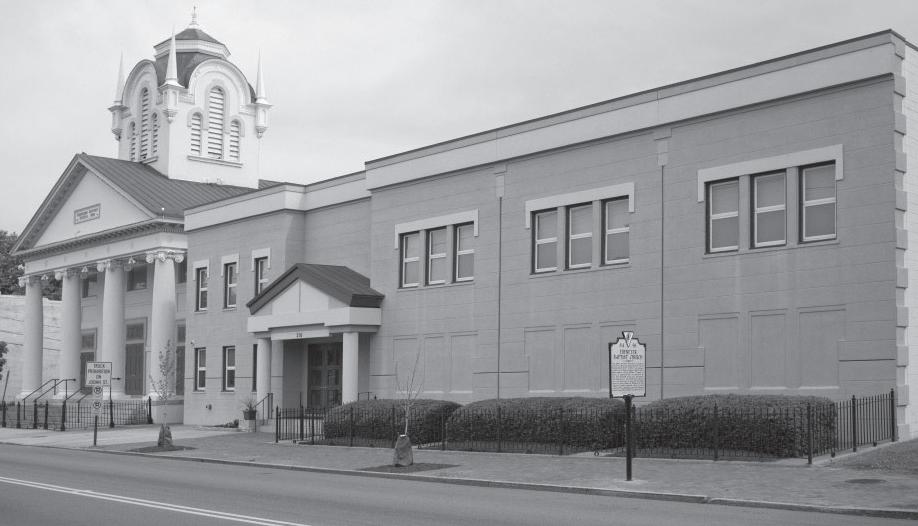



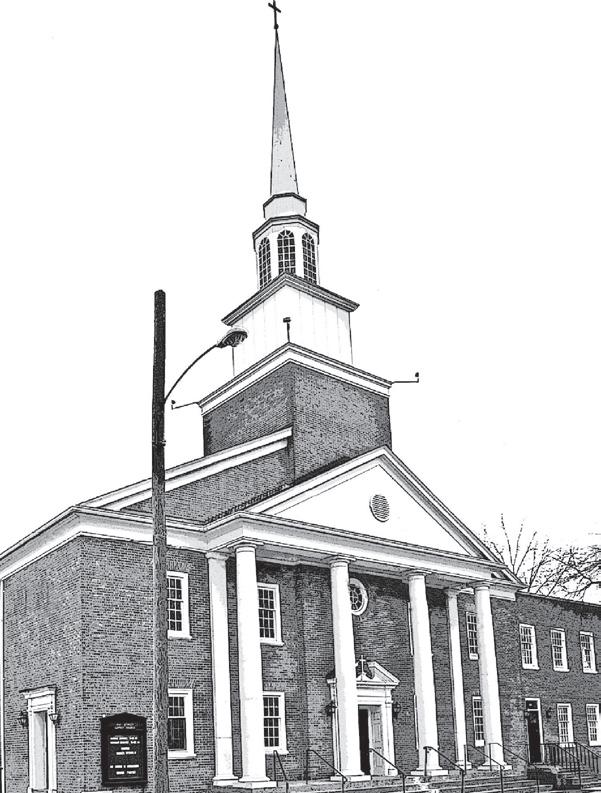
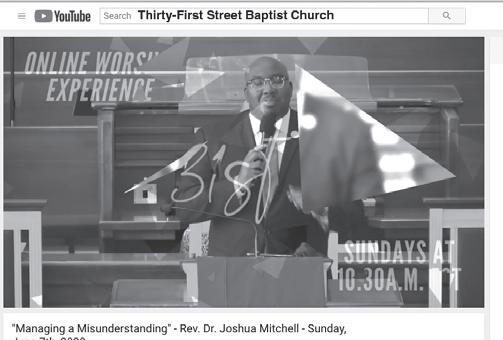

Notice
OF HANOvEr JESSE PriTcHArD, Plaintiff v. TrUDY PriTcHArD, Defendant. case No.: cL24001750-00 OrDEr OF PUBLicATiON
The object of this suit is to obtain a divorce from the bond of matrimony from the defendant on the ground of living separate and apart without any cohabitation and without interruption for a period exceeding twelve months. It is ORDERED that the defendant, whose whereabouts are unknown, appear here on or before the 19th day of July, 2024 at 9:00 a.m. and protect her interests.
A Copy, Teste: FRANK D. HARGROVE, JR.,
Clerk I ask for this: Law Office of Dorothy M. Eure, P.C. Dorothy M. Eure, Plaintiff’s Attorney VSB# 27724 8460 Mount Eagle Road Ashland, VA 23005 (804) 798-9667
virGiNiA: iN THE circUiT cOUrT FOr THE cOUNTY OF HANOvEr rOSLYN MOOrE, Plaintiff v. KATrYcE JAcKSON, Defendant. case No.: cL24001807-00
OrDEr OF PUBLicATiON
The object of this suit is to obtain a divorce from the bond of matrimony from the defendant on the ground of living separate and apart without any cohabitation and without interruption for a period exceeding twelve months.
It is ORDERED that the defendant, whose whereabouts are unknown, appear here on or before the 29th day of July, 2024 at 9:00 a.m. and protect her interests.
A Copy, Teste: FRANK D. HARGROVE, JR.,
Clerk I ask for this: Law Office of Dorothy M. Eure, P.C. Dorothy M. Eure, Plaintiff’s Attorney VSB# 27724
8460 Mount Eagle Road Ashland, VA 23005 (804) 798-9667
virGiNiA:
iN THE circUiT cOUrT FOr THE cOUNTY OF HANOvEr KiM LAWrENcE, Plaintiff v. OLivEr LAWrENcE, Defendant. case No.: cL22003829-00 OrDEr OF PUBLicATiON
The object of this suit is to obtain a divorce from the bond of matrimony from the defendant on the ground of living separate and apart without any cohabitation and without interruption for a period exceeding twelve months.
It is ORDERED that the defendant, who has been served with the Complaint by posted service appear here on or before the 29th day of July, 2024 and protect his interests.
A Copy, Teste: FRANK D. HARGROVE, JR., Clerk I ask for this: Law Office of Dorothy M. Eure, P.C. Dorothy M. Eure, Plaintiff’s Attorney VSB# 27724 8460 Mount Eagle Road Ashland, VA 23005 (804) 798-9667
cUSTODY virGiNiA: iN THE JUvENiLE AND DOMESTic rELATiONS DiSTricT cOUrT OF THE ciTY OF ricHMOND
commonwealth of virginia, in re JOUrNEE & JAcir LYNcH rDSS v. JOvON LYNcH case No. JJ103286-03-00, JJ103285-03-00 OrDEr OF PUBLicATiON The object of this suit is to: terminate the residual parental rights {“TPR”) of Jovon Lynch (Father) of Journee Lynch, child DOB 01/07/2023, and Jacir Lynch, child DOB 04/14/2020, “TPR” means all rights and responsibilities remaining with Parent after transfer of legal custody or guardianship of the person, including but not limited to rights of: visitation; adoption consent; determination of religious affiliation; and responsibility for support. It is ORDERED that the defendant Jovon Lynch (Father) to appear at the above-named Court and protect his/her interest on or before 08/08/2024, at 10:30 A.M, cOUrTrOOM #3 (AFr)
virGiNiA: iN THE JUvENiLE AND DOMESTic rELATiONS DiSTricT cOUrT OF THE ciTY OF ricHMOND commonwealth of virginia, in re KYLiE DArQUAN HArriS rDSS v. rAvEN HArriS, UNKNOWN FATHEr case No. JJ101948-11-00, JJ101948-10-00
OrDEr OF PUBLicATiON
The object of this suit is to: terminate the residual parental rights {“TPR”) of raven Harris (Mother) & Unknown Father (Father) of Kylie Daquan Harris, child DOB 11/17/2022, “TPR” means all rights and responsibilities remaining with Parent after transfer of legal custody or guardianship of the person, including but not limited to rights of: visitation; adoption consent; determination of religious affiliation; and responsibility for support. It is ORDERED that the defendant r aven Harris (Mother) & Unknown Father to appear at the above-named Court and protect his/her interest on or before 08/13/2024, at 2 P.M, cOUrTrOOM #2 (McG) PrOPErTY
virGiNiA: iN THE circUiT cOUrT FOr THE cOUNTY OF HANOvEr Balducci Developers, LLc 10173 chamberlayne road Mechanicsville, vA 23116
Plaintiff, v.
Any and all persons known or unknown claiming an interest in certain property situated in Hanover county, virginia, designated by GPiN Number 8737-25-4710 and identified as 10288 Gould Hill road Defendant. case No. cL24001838-00
OrDEr OF PUBLicATiON An object of this suit is to partition the property briefly described as 10288 Gould Hill Road Hanover VA 23069, Tax Map Number 8737-254710 As it is apparent that the defendants in this lawsuit have potential interest in the subject property; and As “Any and All Other Interested Parties”, as defendants, cannot be located; and As the parties have not been served with process, then iT iS OrDErED that ANY AND ALL PErSONS cLAiMiNG AN iNTErEST iN THE PrOPErTY situated in Hanover county, virginia, designated by GPiN Number 8737-25-4710 and identified as 10288 Gould Hill road, come forward to appear in the Circuit Court for the County of Hanover, Virginia on or before July 30, 2024 at 9:00 a.m. and do what is necessary to protect their interest in the property briefly

described as GPiN Number 8737-25-4710 and identified as 10288 Gould Hill road in this matter The Court in its discretion hereby dispenses with the requirements of Rule 1:13 of the Virginia Supreme Court. A copy Teste Frank D. Hargrove, Jr, clerk i ASK FOr THiS: Benjamin M. Andrews, Esquire (VSB No. 77824) Andrews Law PLC 5711 Greendale Road, Suite 2 Henrico, Virginia 23228 804-918-2091 benjamin@andrewslawva.com ABc LicENSE Maracuchos rvA LLc Trading as: Maracuchos 13979 raised Antler circle Midlothian, chesterfield, virginia 23112-2005 The above establishment is applying to the VIRGINIA A LCOHOLIC B EVERAGE C ONTROL (ABC) AUTHORITY for a Mixed Beverage, Wine, and Beer On and Off Premise license to sell or manufacture alcoholic beverages. NOTE: Objections to the issuance of this license must be submitted to
South Laburnum Avenue at Route 5 Turn Lane Extension County of Henrico, Virginia
Notice of Willingness to Hold a Public Hearing
The County of Henrico proposes to provide a 200-feet long turn lane with a 100-foot taper to extend the southbound right-turn lane at Laburnum Avenue and shoulder on the approach to Route 5/New Market Road.
Construction is anticipated to begin in June 2026
Information related to this project including the plans, project schedule, and funding information can be reviewed at the County of Henrico, Department of Public Works, 4305 E. Parham Road, Administration Annex Building, 3 rd Floor, Henrico, VA 23228, Telephone: 804-501-5115.
County is willing to hold a public hearing. You may request a public hearing by sending a written request to the Department of Public Works, Attn: LaTheasha Hinton, P. O. Box 90775, Henrico, VA 23273-0775, on or before June 28, 2024. If a request for a public hearing is received, a notice of the date, time, and place of the public hearing will be provided.
The County ensures nondiscrimination and equal employment in all programs and activities in accordance with Title VI and Title VII of the Civil Rights Act of 1964.
If you need more information or special assistance for persons with disabilities



LaTheasha Hinton at the above address, phone number, or hin03@henrico.us.
VDOT UPC #: 117049
The County of Henrico proposes constructing a sidewalk project along
S. Laburnum Avenue Southbound Sidewalk County of Henrico, Virginia
Notice of Willingness to Hold a Public Hearing
The County of Henrico proposes to provide approximately 420 linear feet of a sidewalk along the southbound side of Laburnum Avenue between 600 linear south of Gay Avenue and Williamsburg Road to include ADA curb ramps and pedestrian crosswalks on the southern leg of Laburnum Avenue and Williamsburg Road.
Construction is anticipated to begin in August 2026.
Information related to this project including the plans, project schedule, and funding information can be reviewed at the County of Henrico, Department of Public Works, 4305 E. Parham Road, Administration Annex Building, 3rd Floor, Henrico, VA 23228, Telephone: 804-501-5115.
County is willing to hold a public hearing. You may request a public hearing by sending a written request to the Department of Public Works, Attn: LaTheasha Hinton, P. O. Box 90775, Henrico, VA 23273-0775, on or before June 28, 2024. If a request for a public hearing is received, a notice of the date, time, and place of the public hearing will be provided.
The County ensures nondiscrimination and equal employment in all programs and activities in accordance with Title VI and Title VII of the Civil Rights Act of 1964. If you need more information or special assistance for persons with disabilities
LaTheasha Hinton at the above address, phone number, or hin03@henrico.us.
VDOT UPC #: 117034
The County of Henrico proposes to provide approximately 2,500 linear feet of sidewalk along the northbound side of Laburnum Avenue between Audubon Drive and Williamsburg Road to include ADA curb ramps and pedestrian crosswalks on the northern legs of Laburnum Avenue and Audubon Drive and ties to existing ramps at Williamsburg Road.
Construction is anticipated to begin in September 2026.
Information related to this project including the plans, project schedule, and funding information can be reviewed at the County of Henrico, Department of Public Works, 4305 E. Parham Road, Administration Annex Building, 3rd Floor, Henrico, VA 23228, Telephone: 804-501-5115.
NOTICE OF PUBLIC COMMENT PERIOD AND PUBLIC HEARING FOR THE VIRGINIA DEPARTMENT OF HOUSING AND COMMUNITY DEVELOPMENT PRESERVATION AND REINVESTMENT INITIATIVE FOR COMMUNITY ENHANCEMENT (PRICE)
The Virginia Department of Housing and Community Development (DHCD) is developing an application for the Department of Housing and Urban Development
affordability for residents of manufactured housing or manufactured housing communities, to redevelop manufactured housing communities, and to primarily million for competitive grants to preserve and revitalize manufactured housing and eligible manufactured housing communities, and DHCD is eligible to apply
Development or improvement of infrastructure that supports
County is willing to hold a public hearing. You may request a public hearing by sending a written request to the Department of Public Works, Attn: LaTheasha Hinton, P. O. Box 90775, Henrico, VA 23273-0775, on or before June 28, 2024. If a request for a public hearing is received, a notice of the date, time, and place of the public hearing will be provided.
The County ensures nondiscrimination and equal employment in all programs and activities in accordance with Title VI and Title VII of the Civil Rights Act of 1964. If you need more information or special assistance for persons with disabilities LaTheasha Hinton at the above address, phone number, or hin03@henrico.us.
VDOT UPC #: 117042


